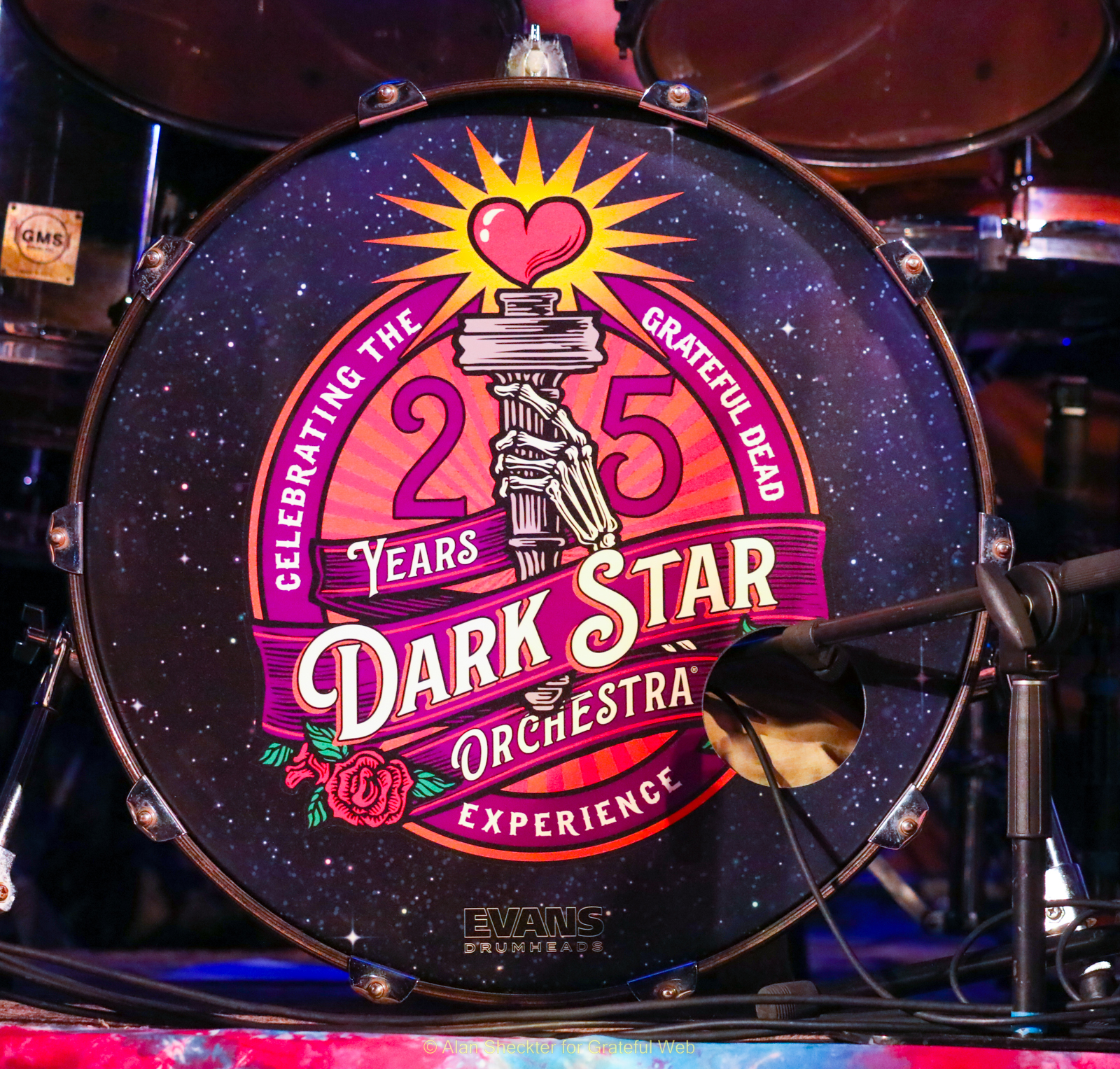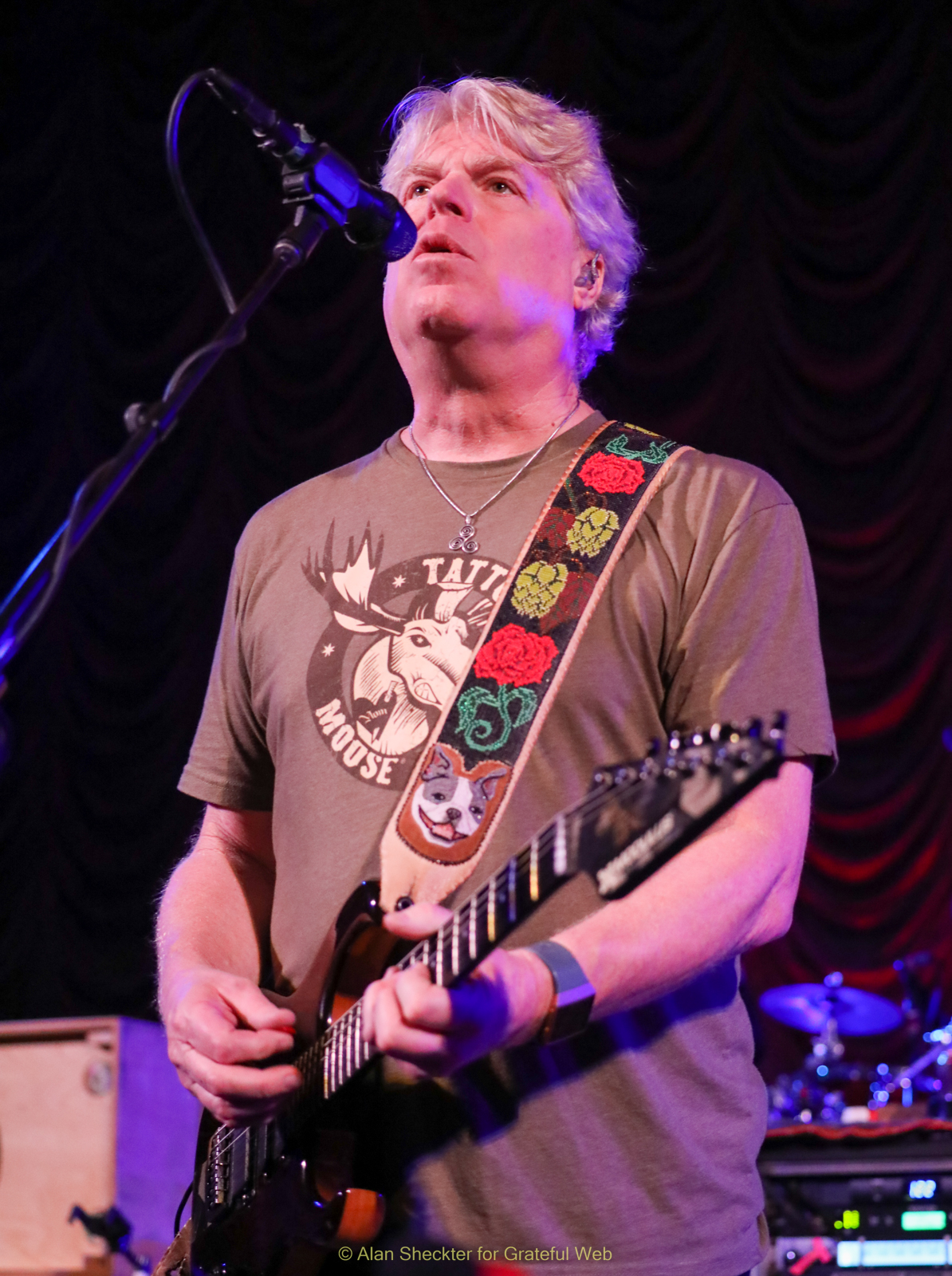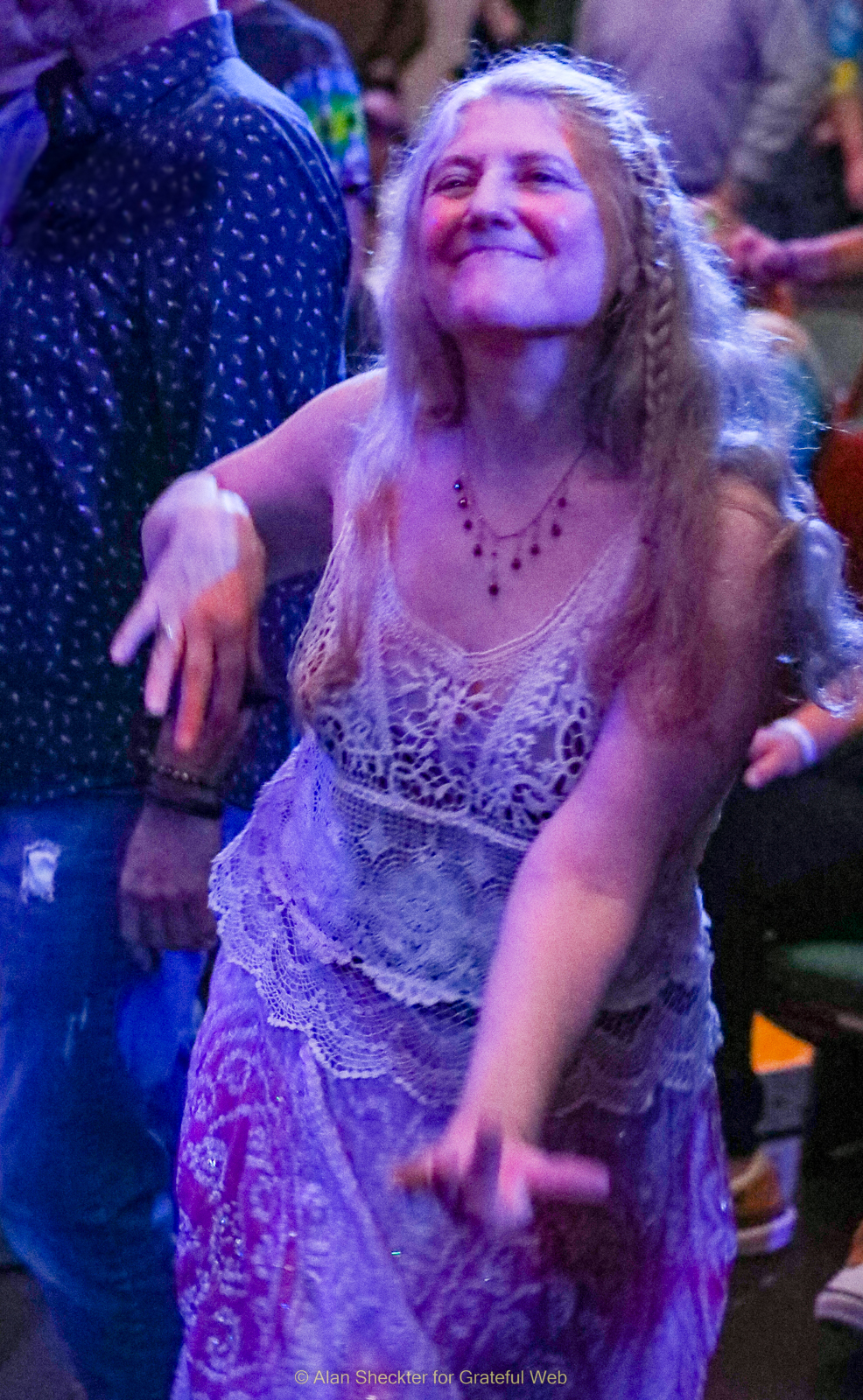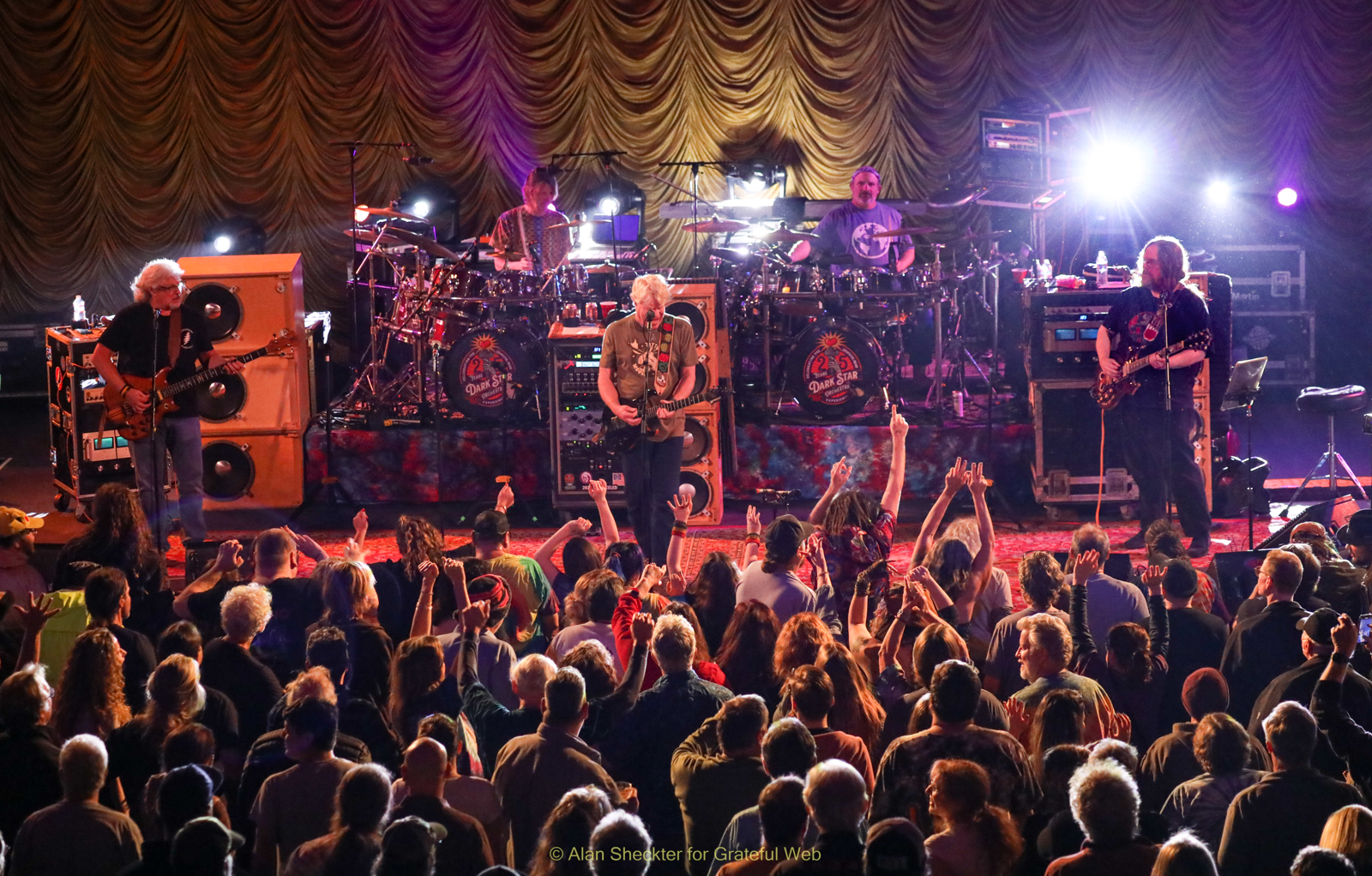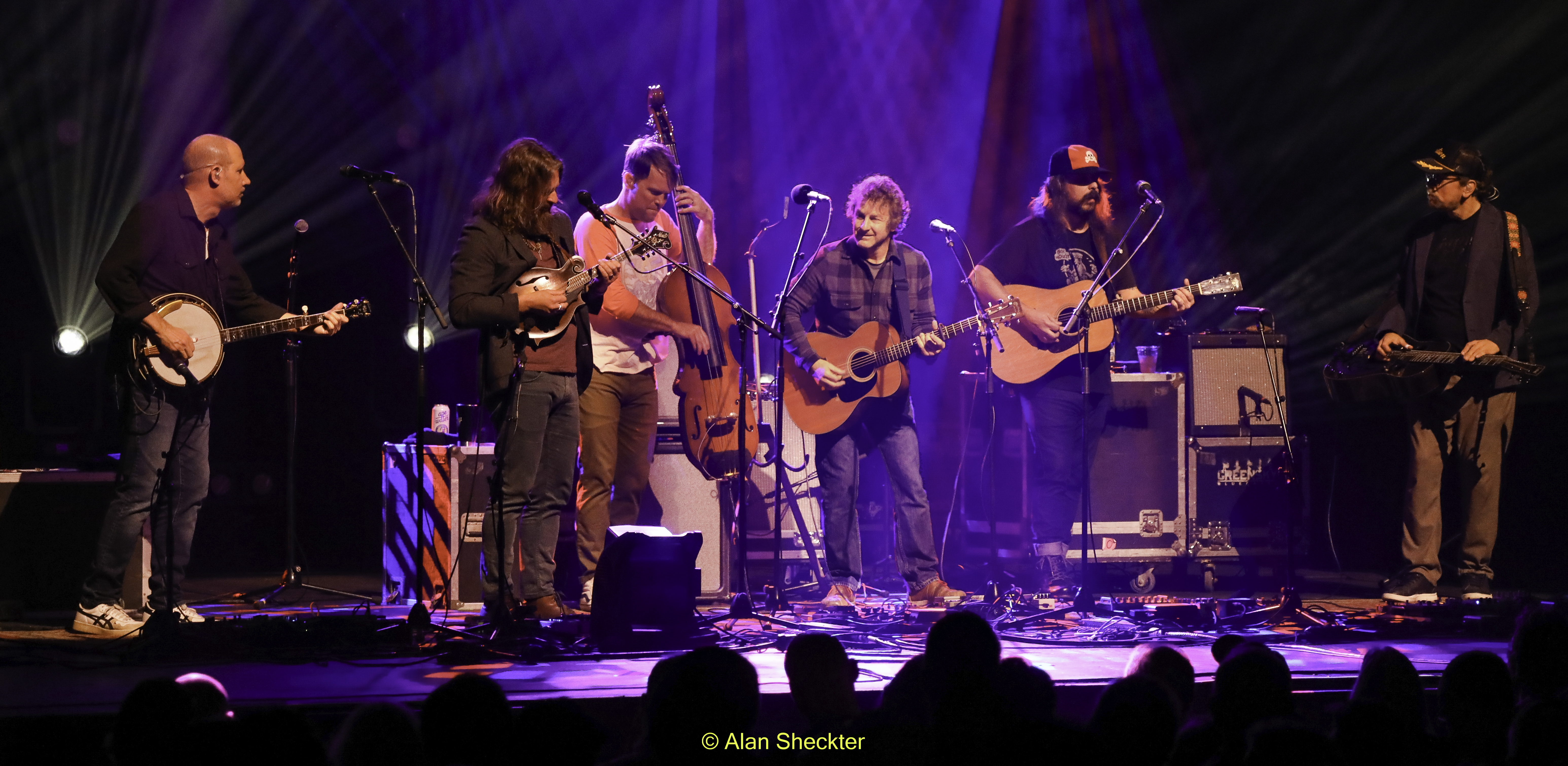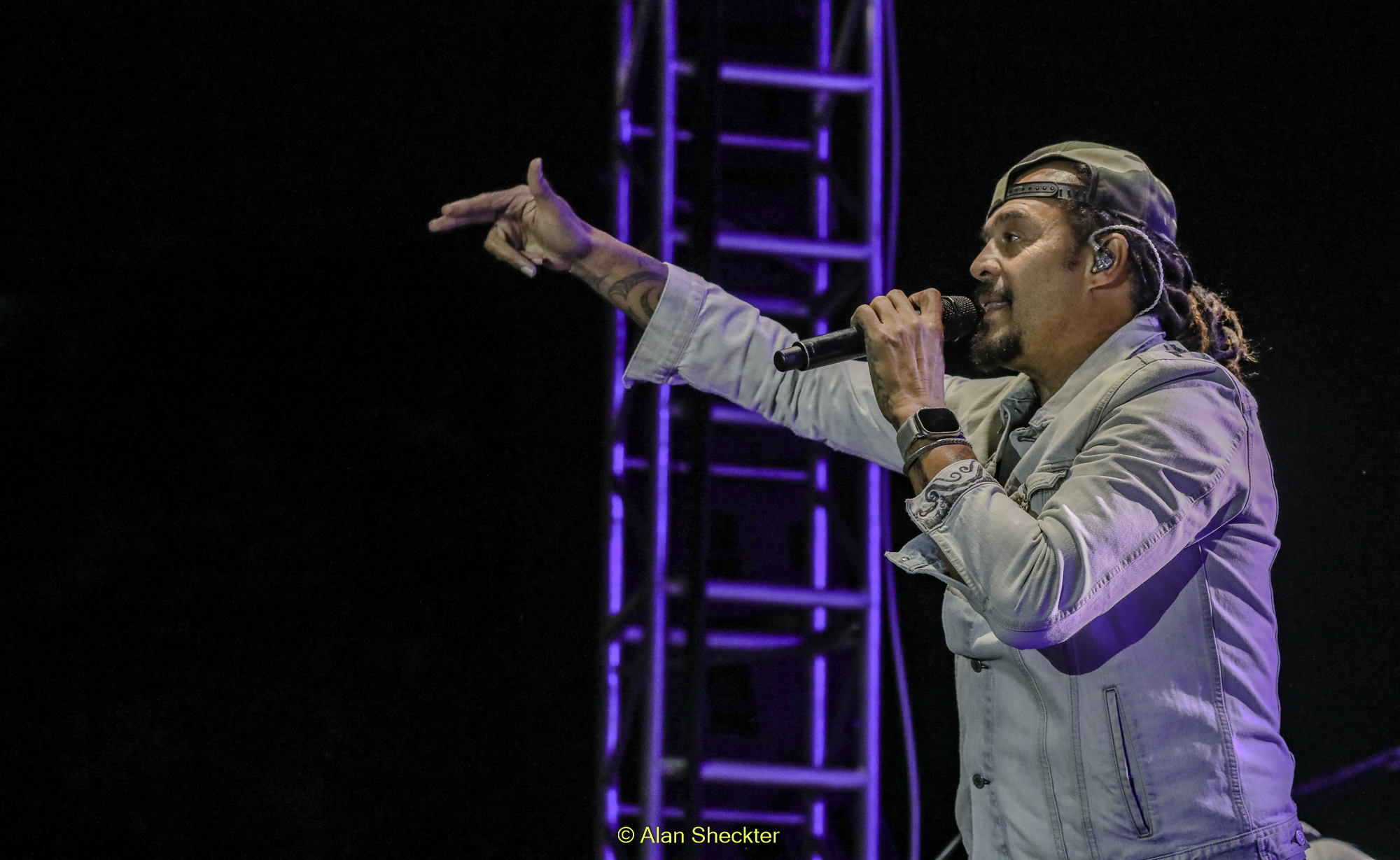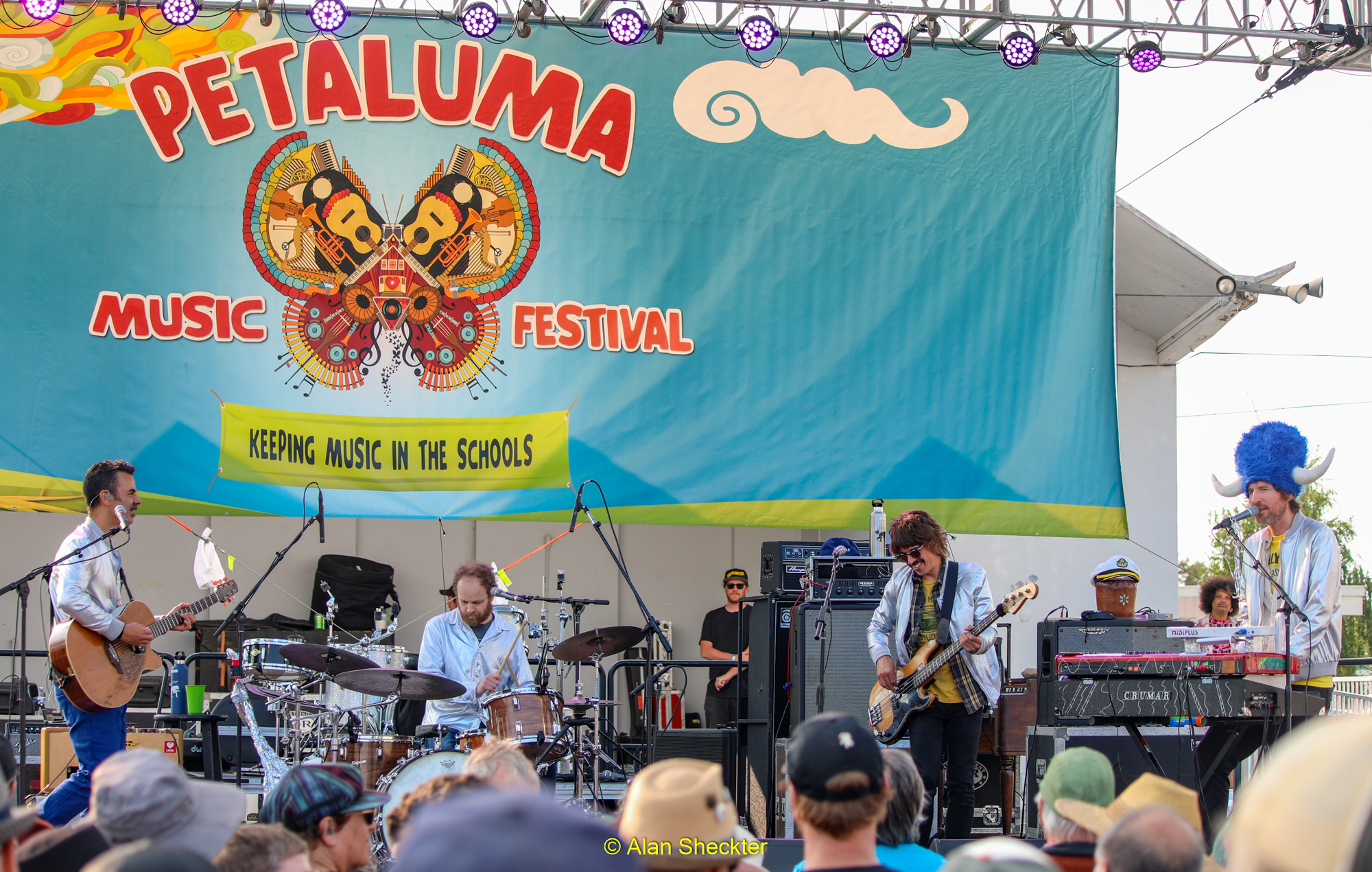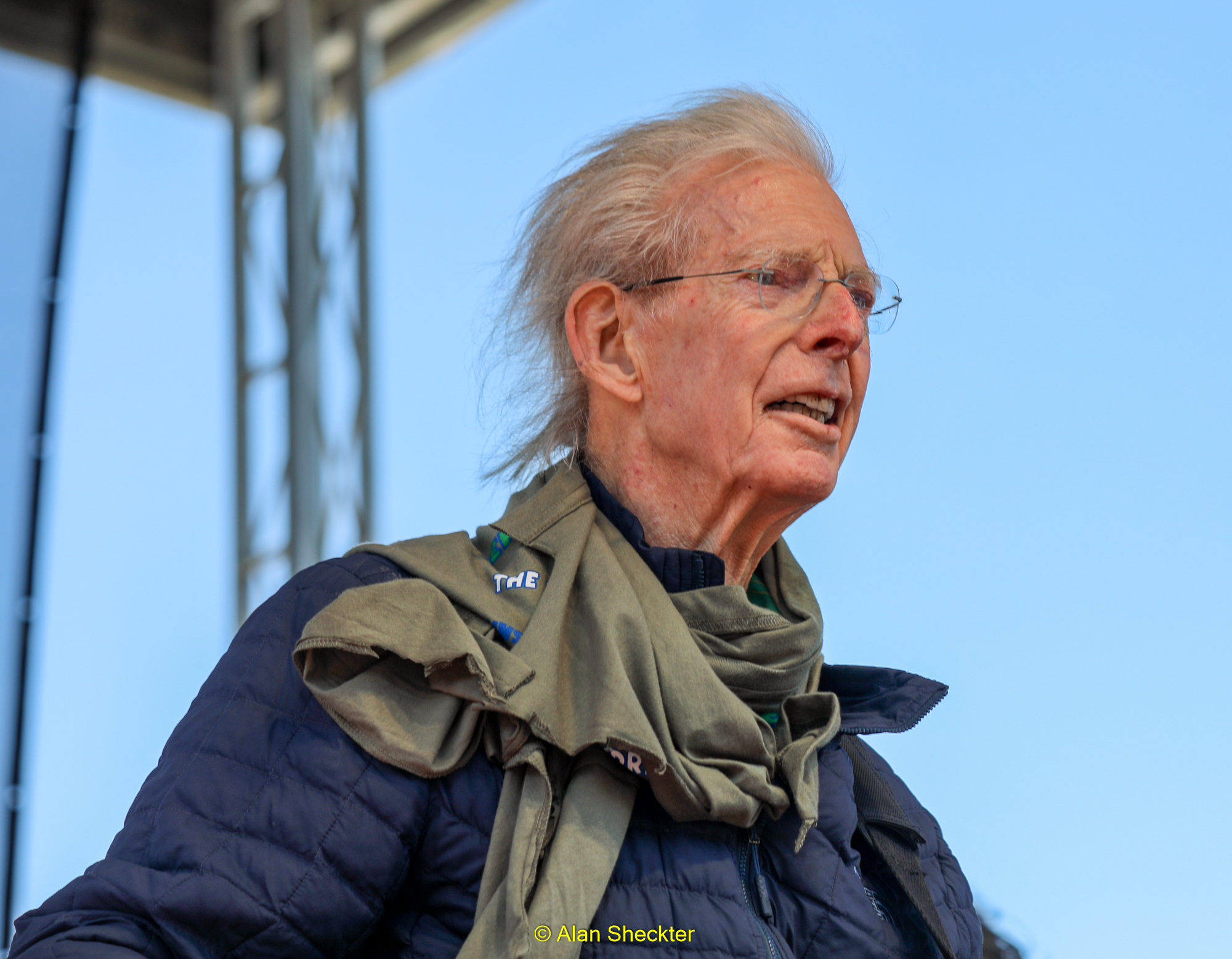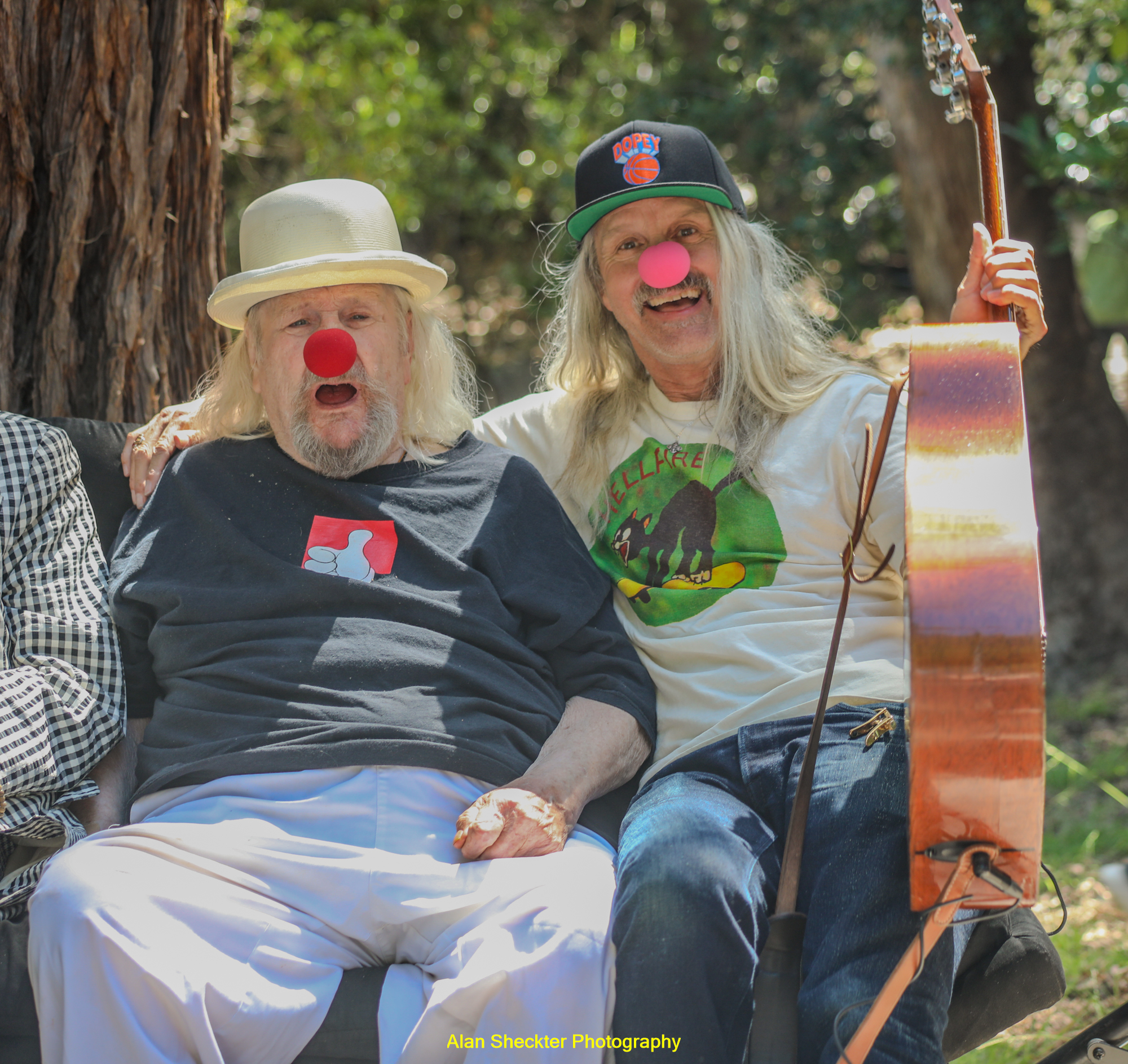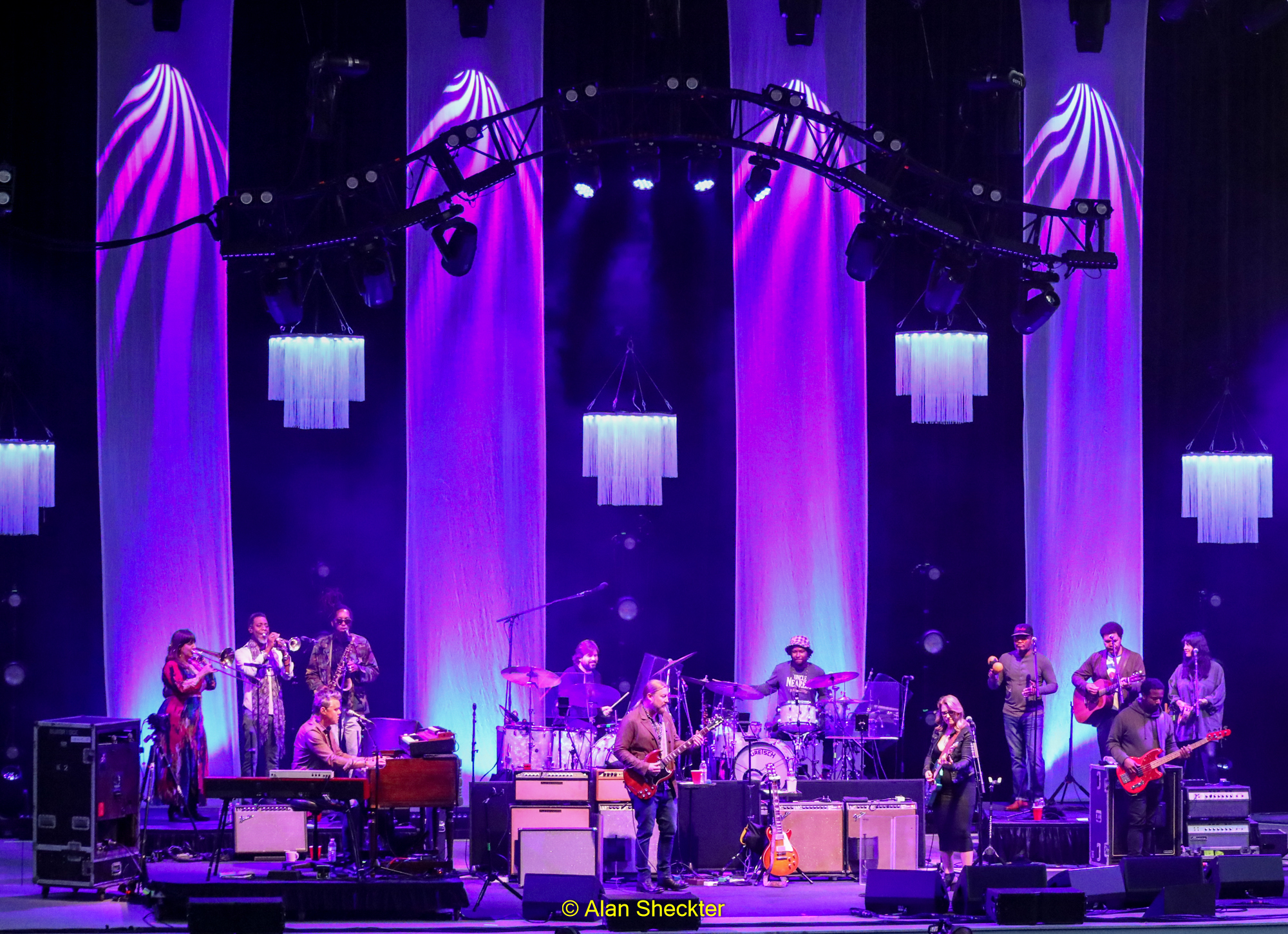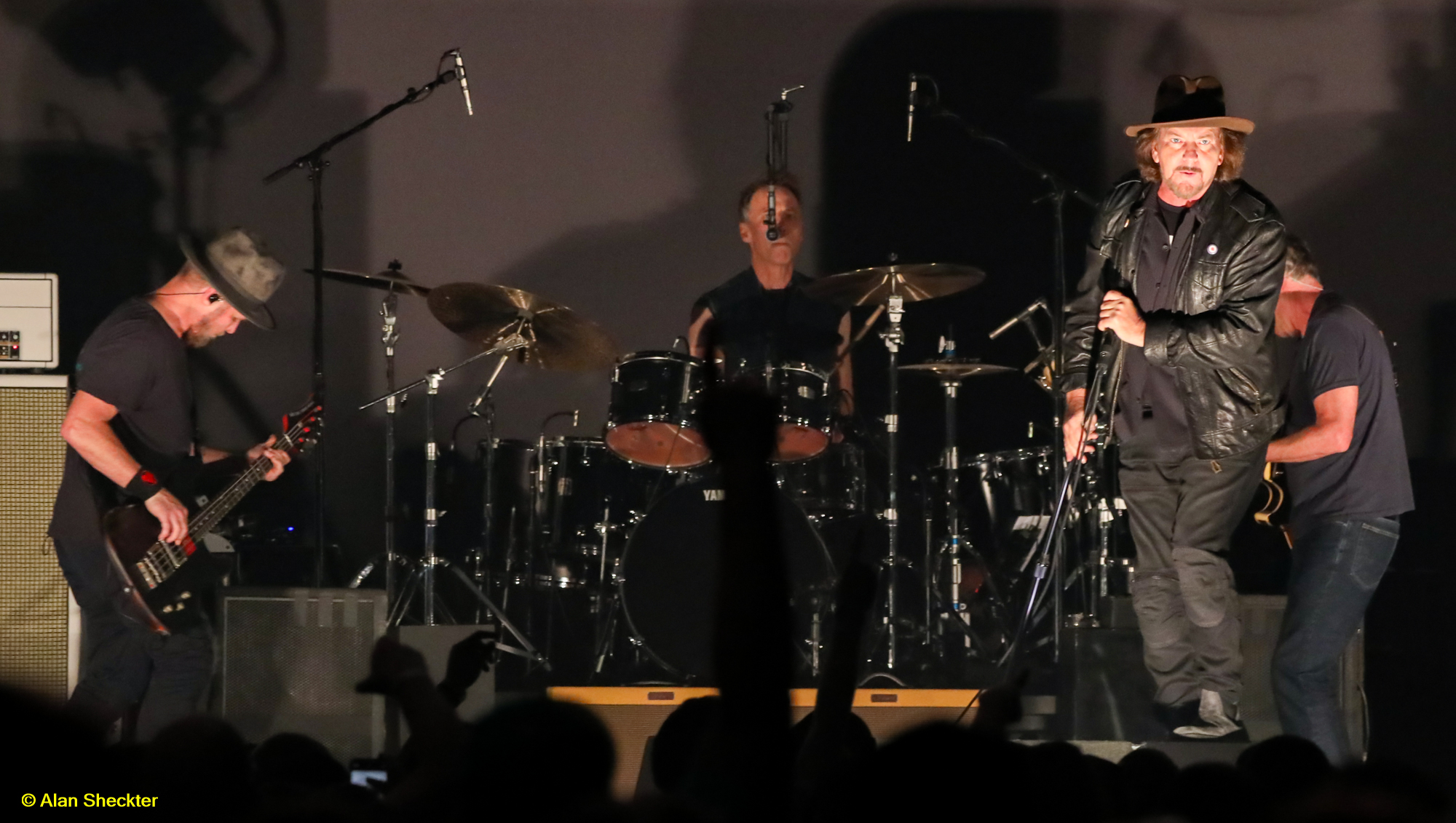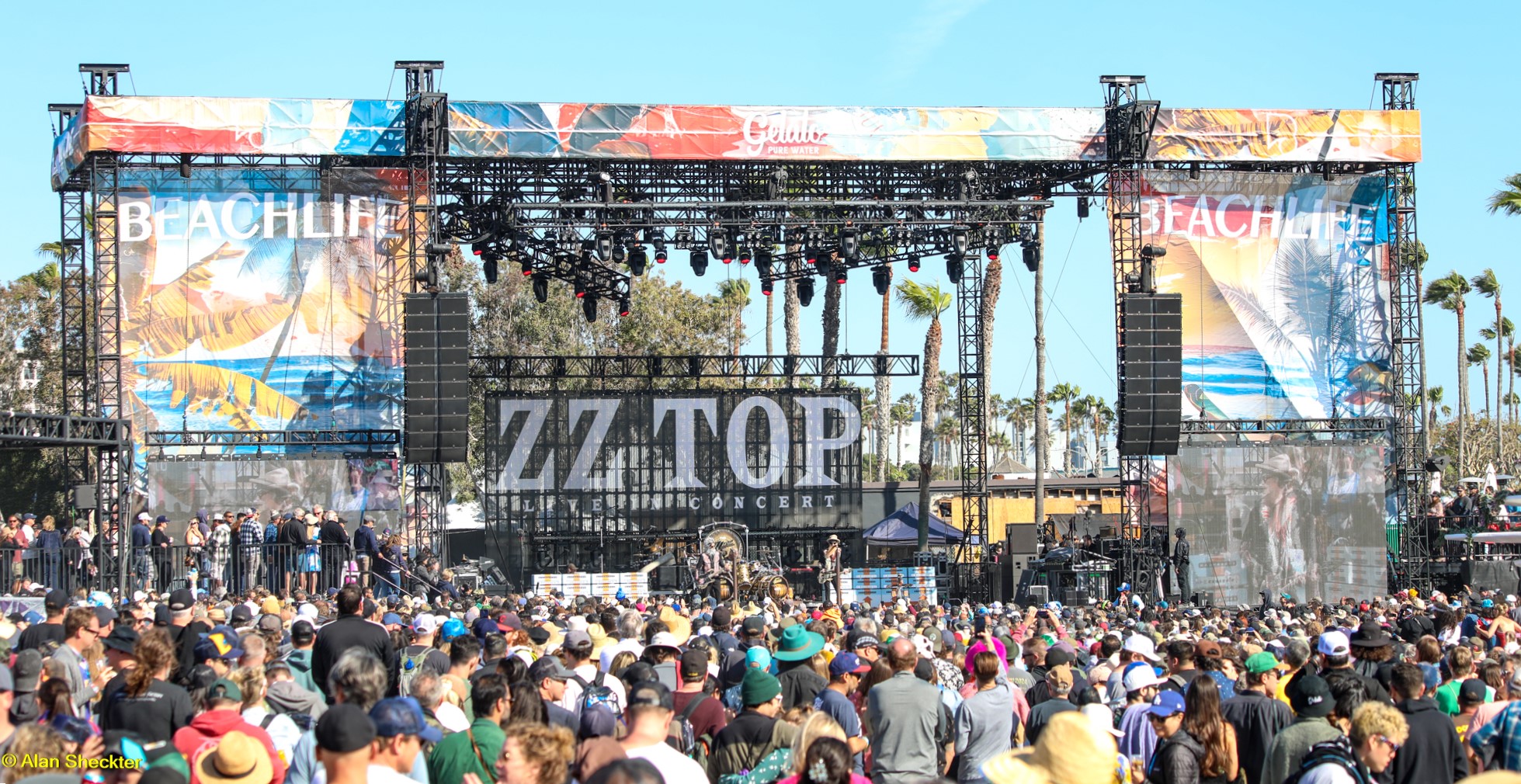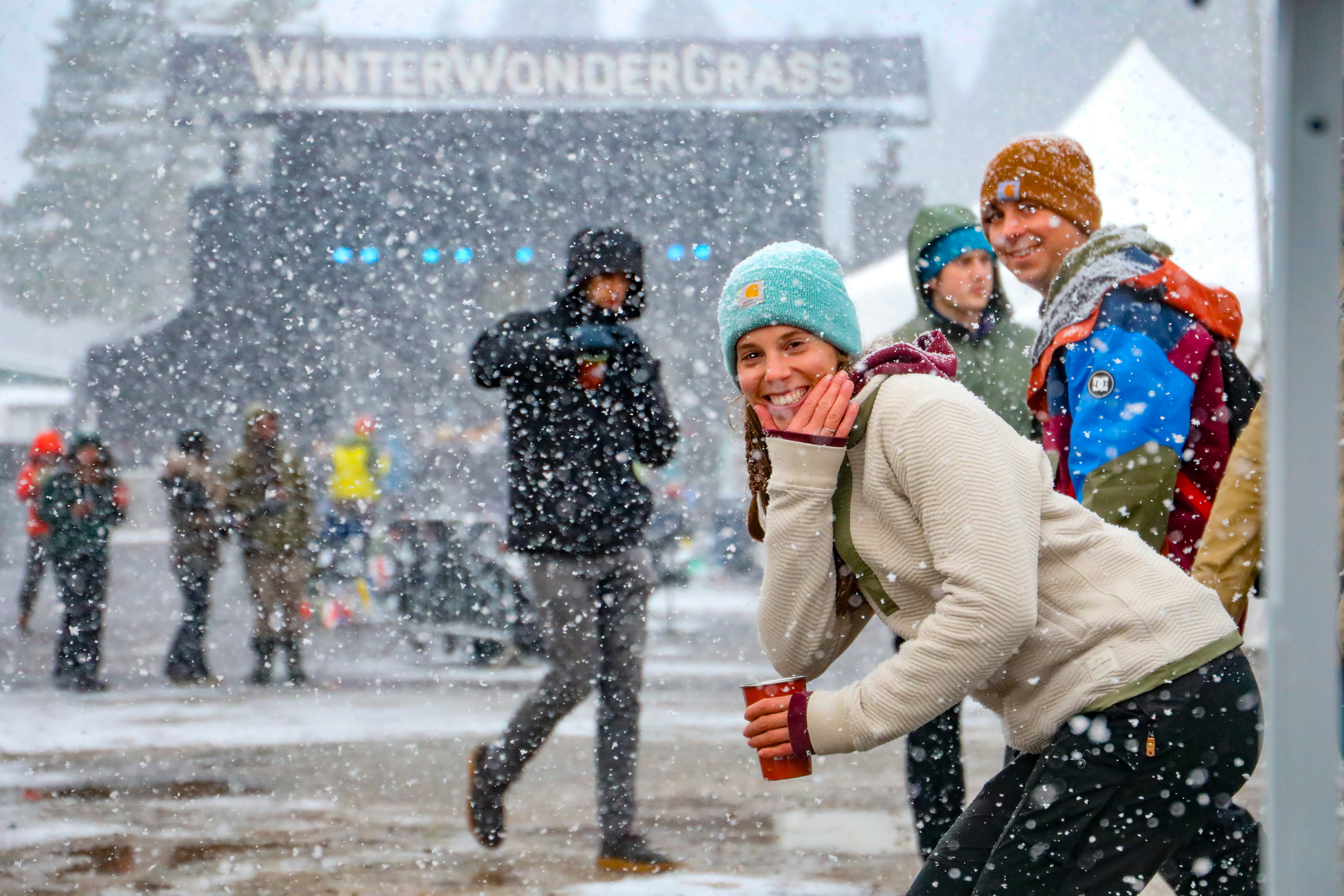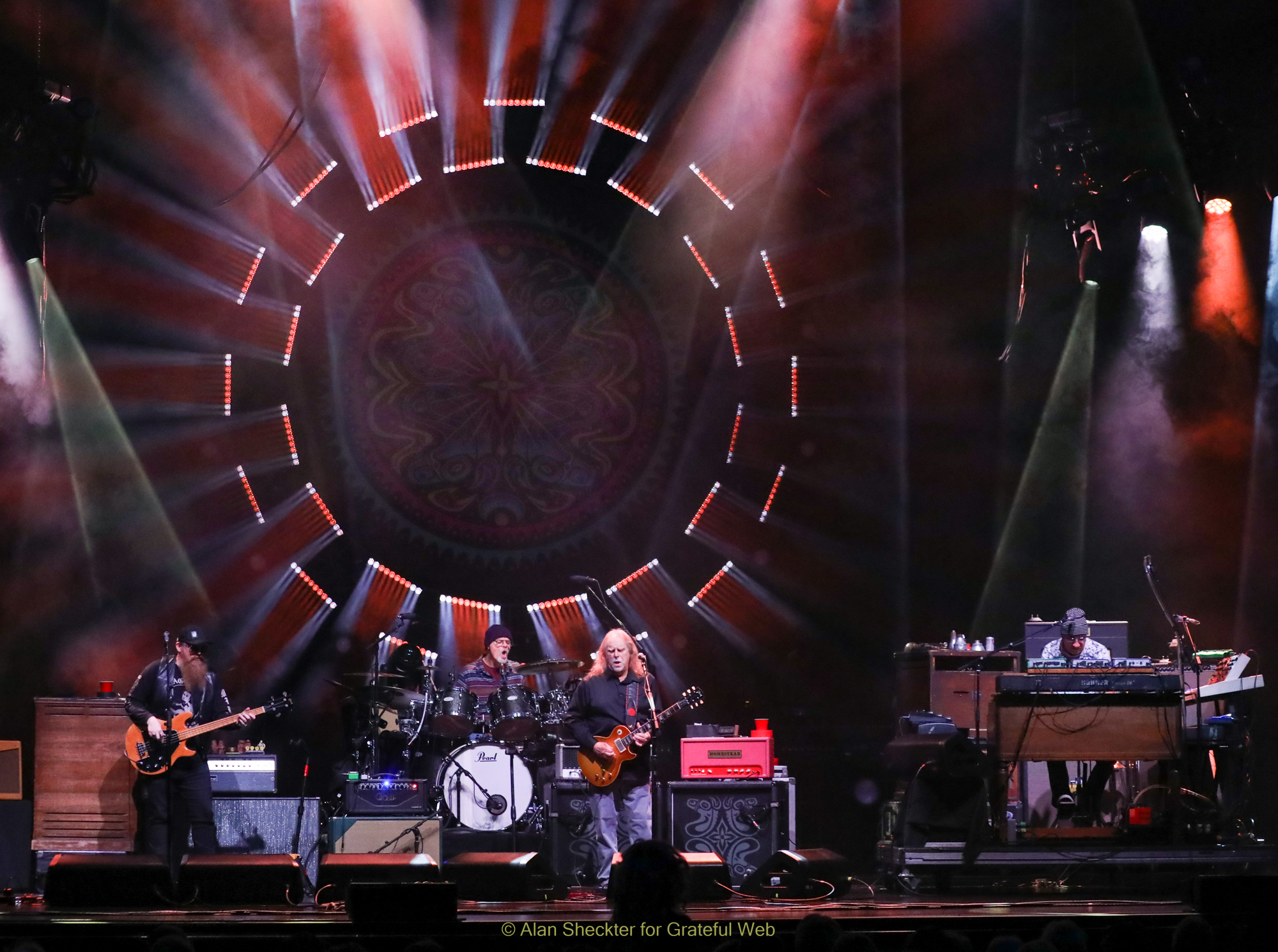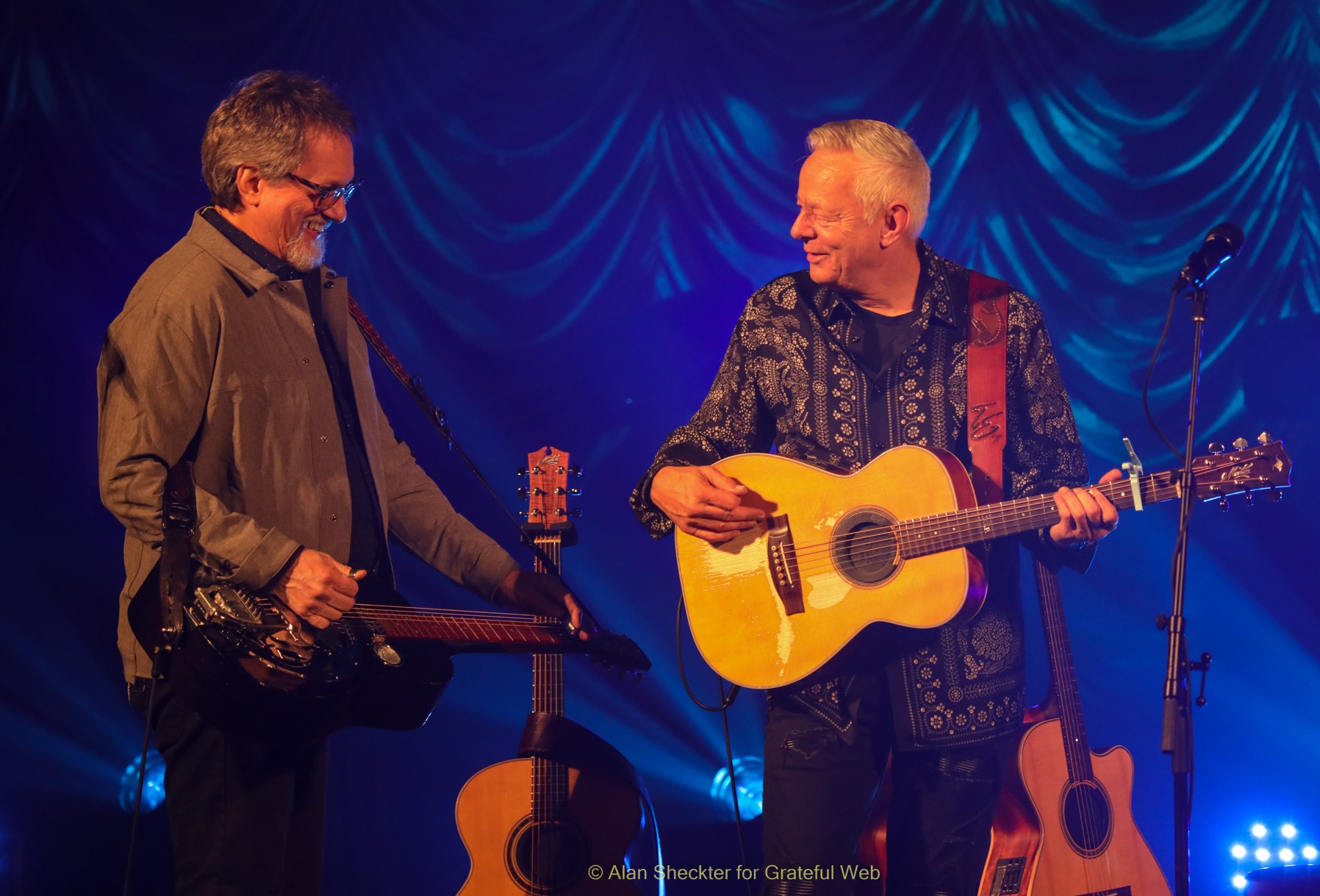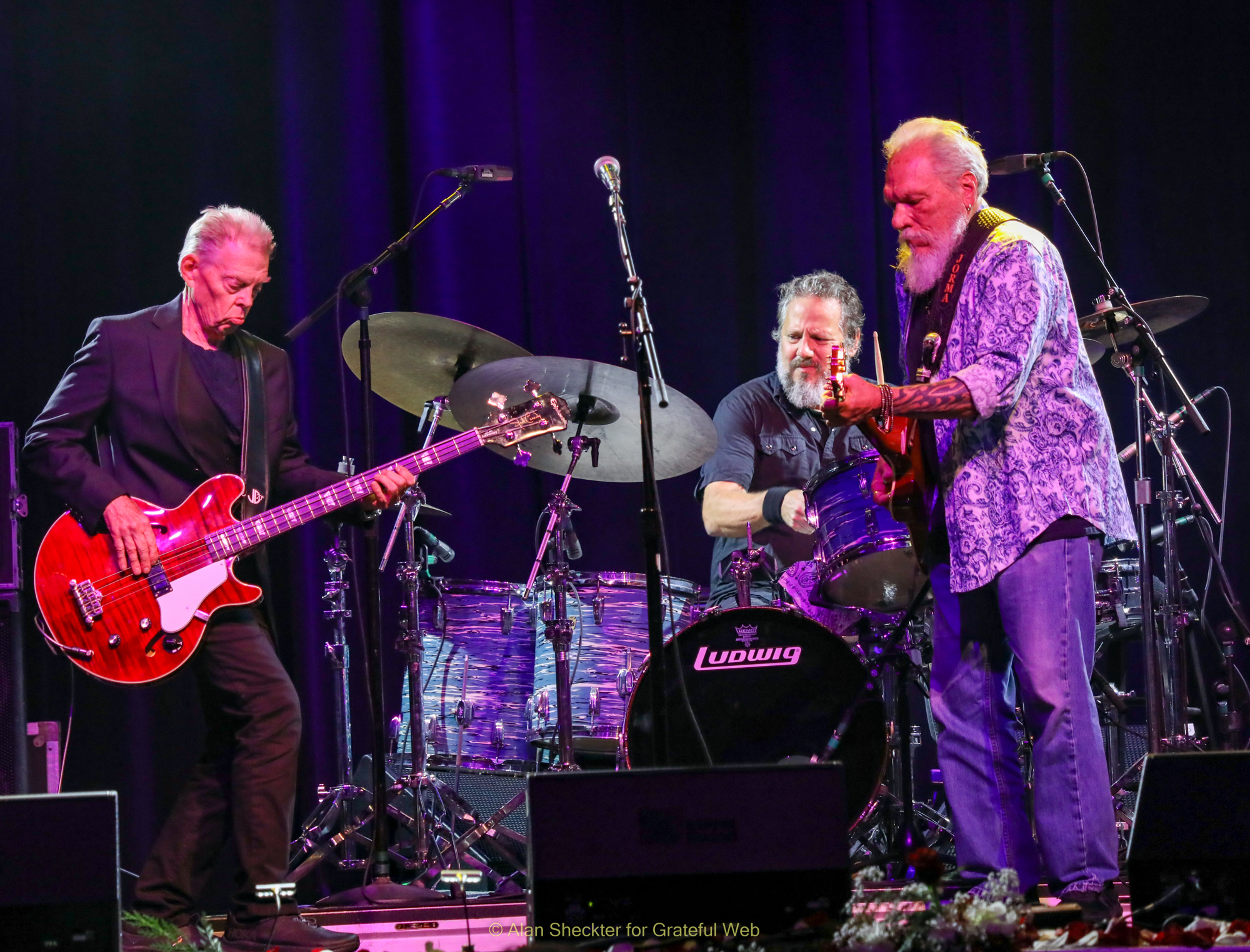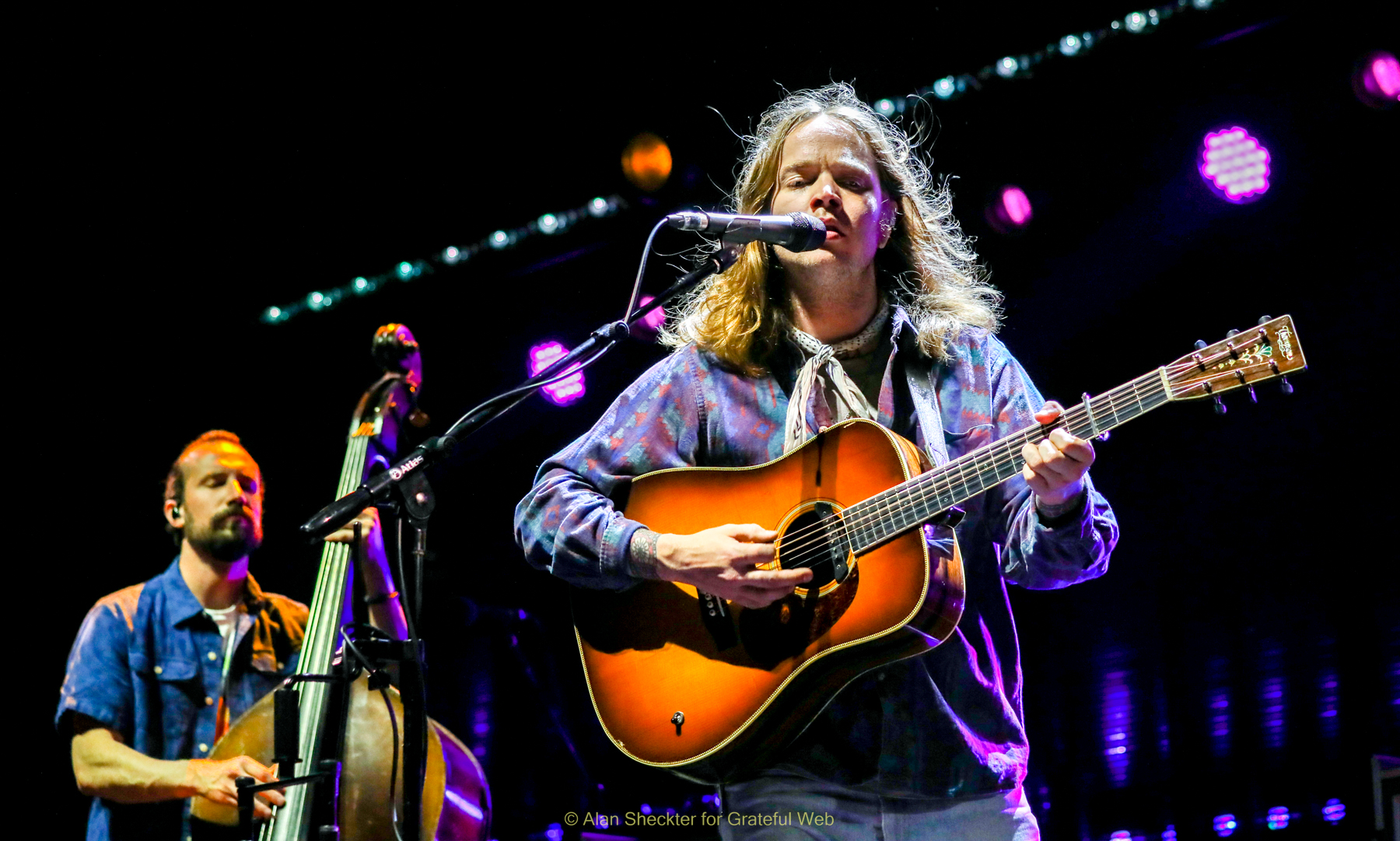In a land abundant with Grateful Dead tribute bands, Dark Star Orchestra (DSO) on February 2 in Sacramento, California, strengthened its unofficial claim as the quintessential torch bearers. Flanked by a devoted and euphoric nearly sold-out audience at the 975-capacity Crest Theatre, the band on this night didn’t replicate an actual Grateful Dead show as they are inclined to do. Instead, they put forth a pair of “elective” sets for a fine 22 song, 3½-hour show that included plenty of lesser-known Dead tunes, along with some cover songs outside of the Grateful Dead repertoire.
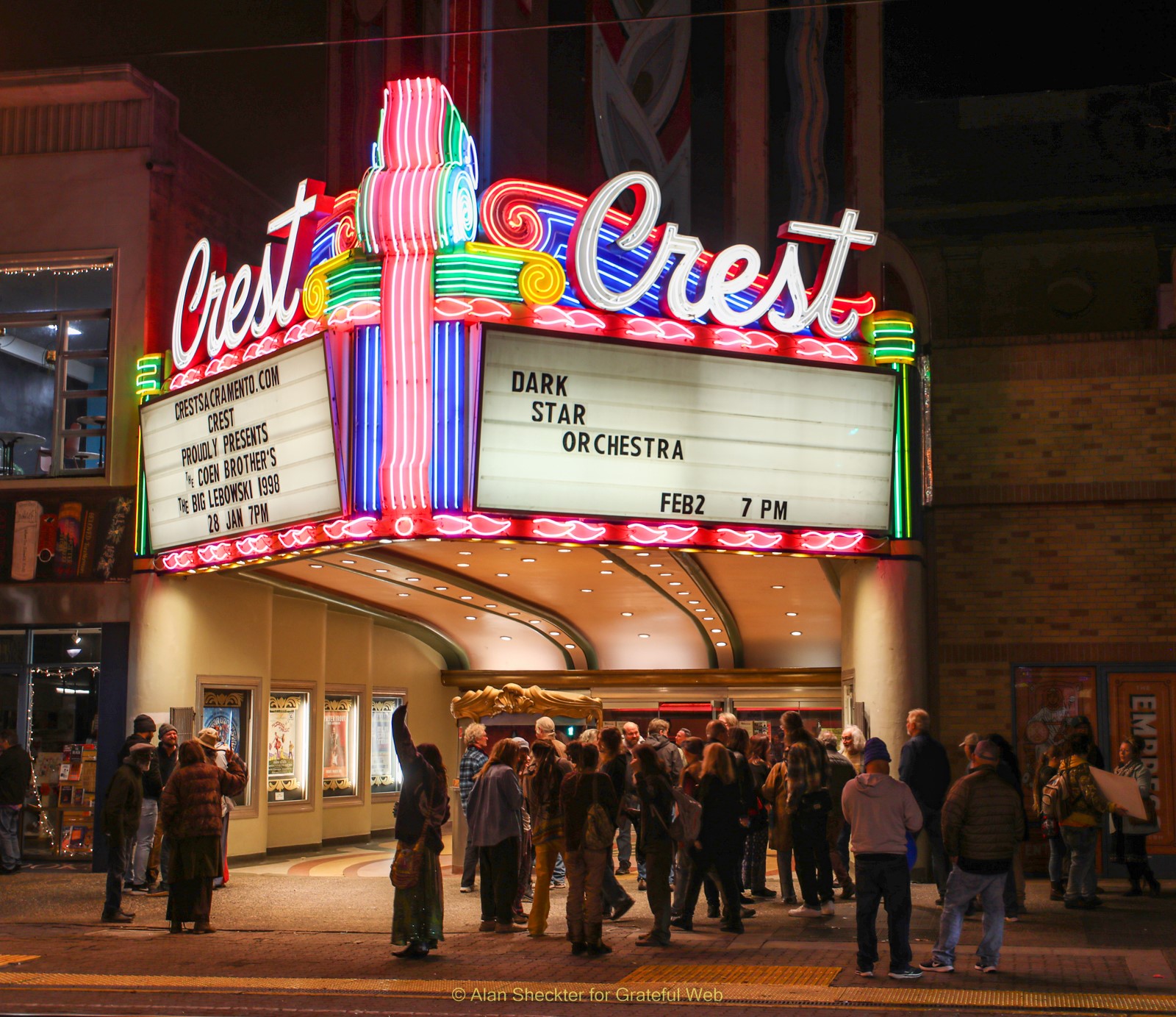
While it’s fun to watch and listen along with the band when they carry out a specific Grateful Dead show, often with more punch and meticulousness than their predecessors, having DSO pick their own songs created a spontaneity and wonderment of what would come next. One such segment was an out-of-left-field first-set closing sequence of “Positively 4th Street” (Bob Dylan, 1965), followed by one of everyone’s favorite ruckus-raising Dead songs, “Cumberland Blues.” The former, which was never performed by the Grateful Dead, but was a Jerry Garcia Band standard from the early ‘70s with Merl Saunders and on into the ‘90s. Here, Jeff Mattson sang an emotional version of the acerbic ballad, with Vangelas providing the bass melody that John Kahn brought to Garcia’s versions, which all led into a scintillating jam. As it wound down, Vangelas plucked the familiar opening bass notes to the set-closing “Cumberland” that had The Crest crowd rollin’ and tumblin’. It should be noted that all night, the band seemed galvanized by the clear, compelling, and formidable bass tones from Vangelas, who was flanked by three very large speaker boxes.
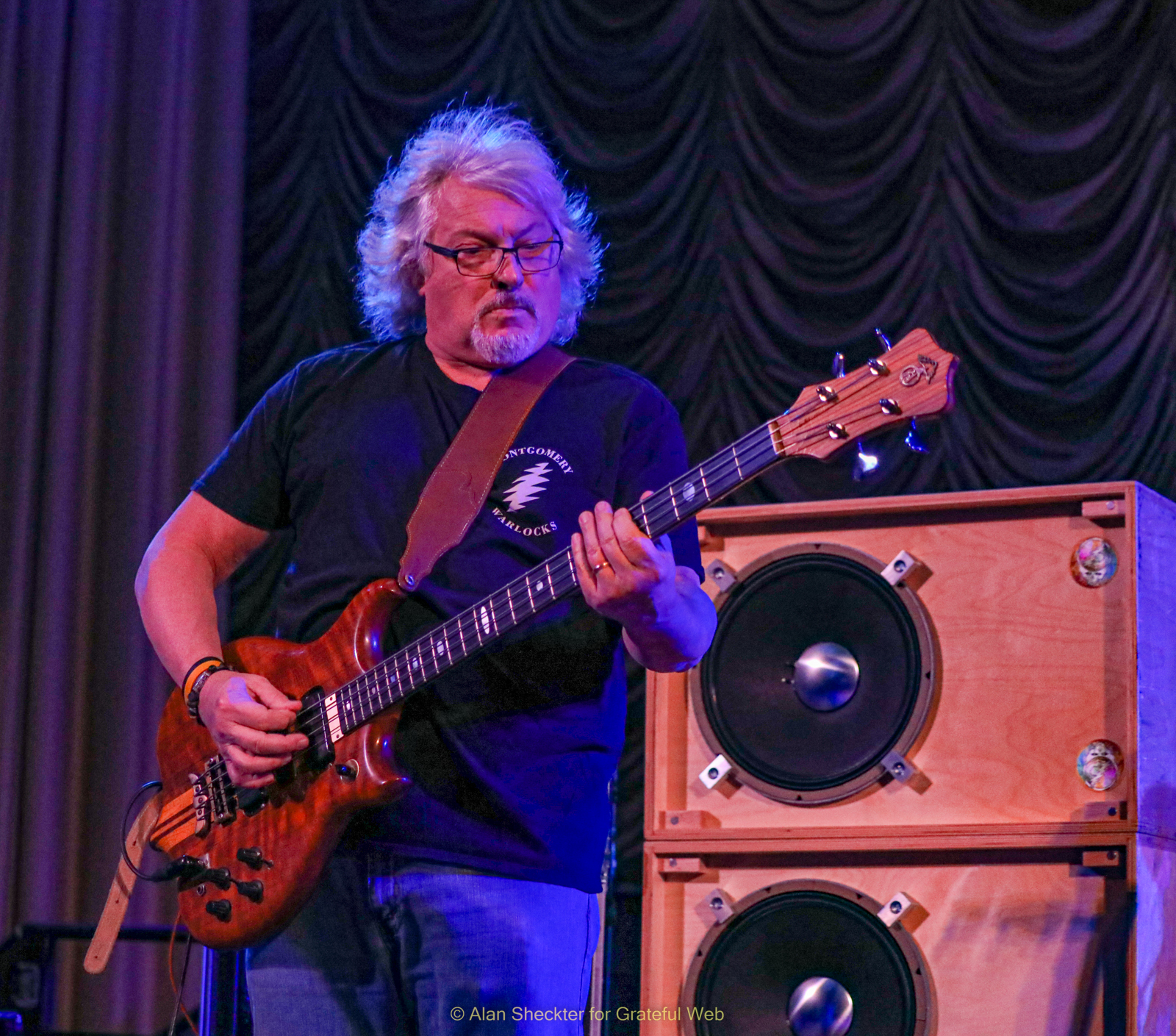
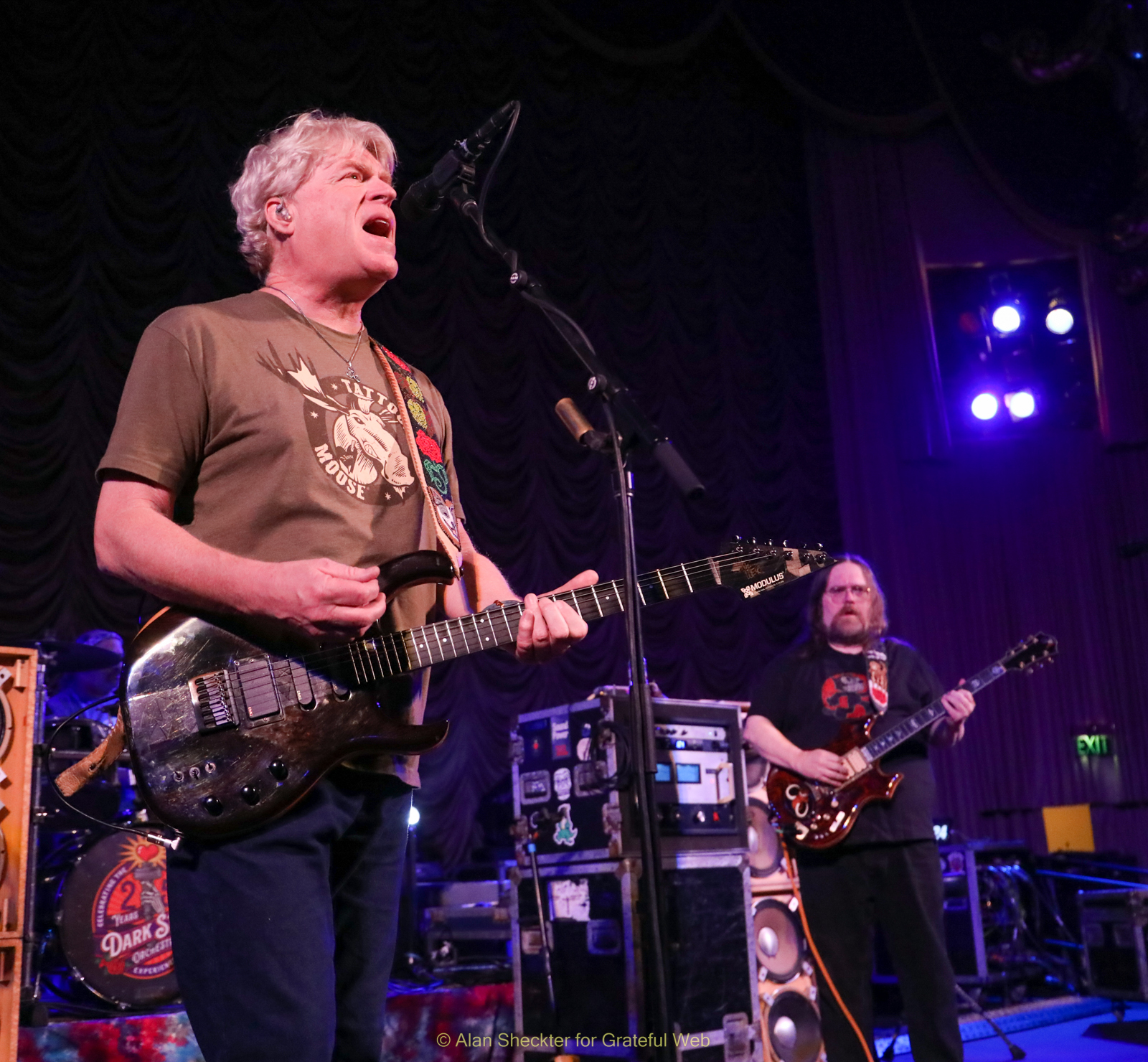
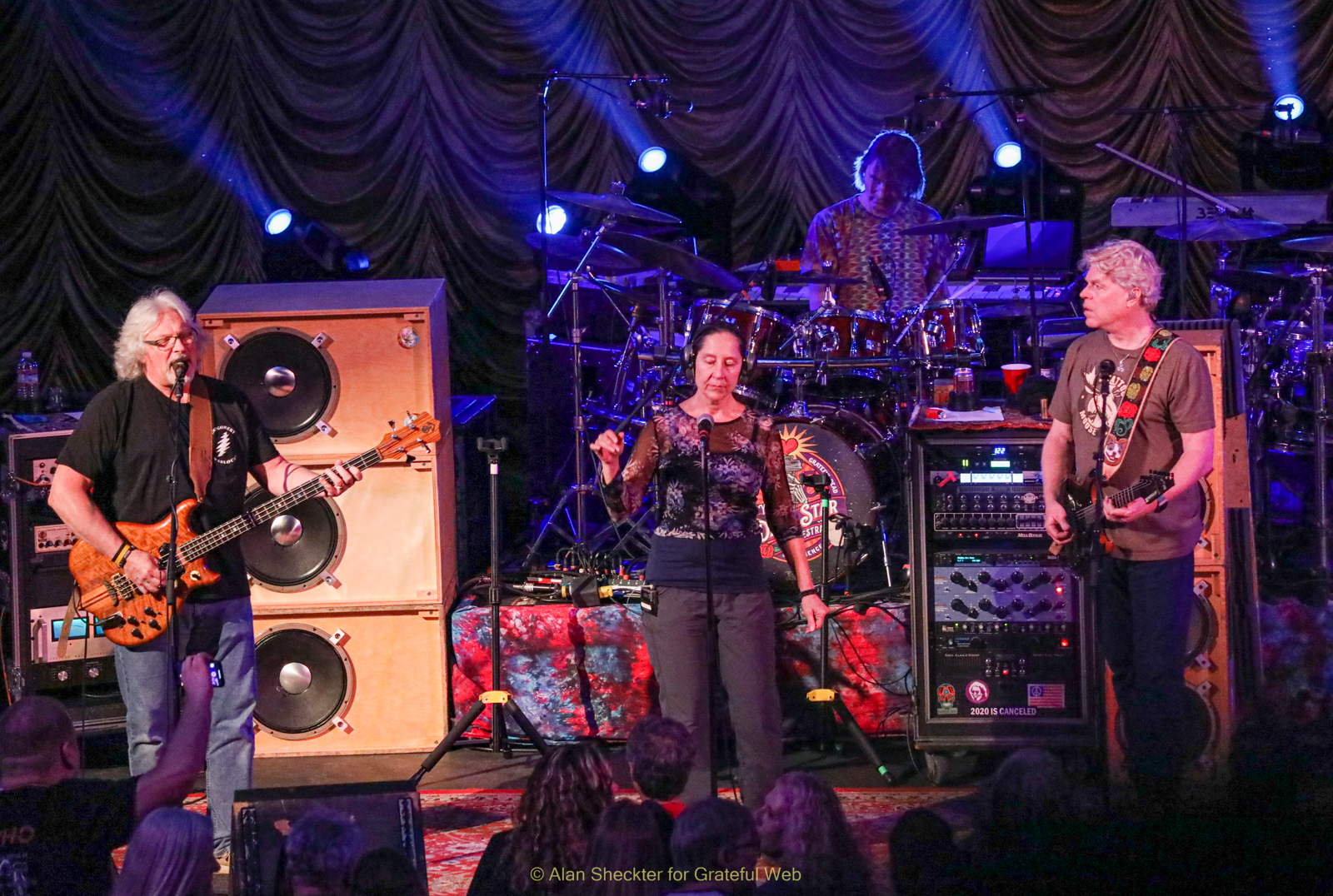
At The Crest, mixed in with classic Grateful Dead standards (which always included cover songs), like the opening sequence of “Cold Rain & Snow” (hundred-year-old Appalachian folk song), “In the Midnight Hour” (Wilson Pickett, 1965) and “West L.A. Fadeaway,” the set also included less celebrated Dead tunes, such as “We Can Run,” the 1989-‘90 Brent Mydland-penned and performed tune, adapted and sung for DSO by Rob Barraco; “Broken Arrow,” the Robbie Robertson song that Phil Lesh covered for the Dead during the band’s final years, now revived and sung by Vangelas; and “My Brother Esau,” a mid-‘80s Bob Weir selection, led by Rob Eaton.
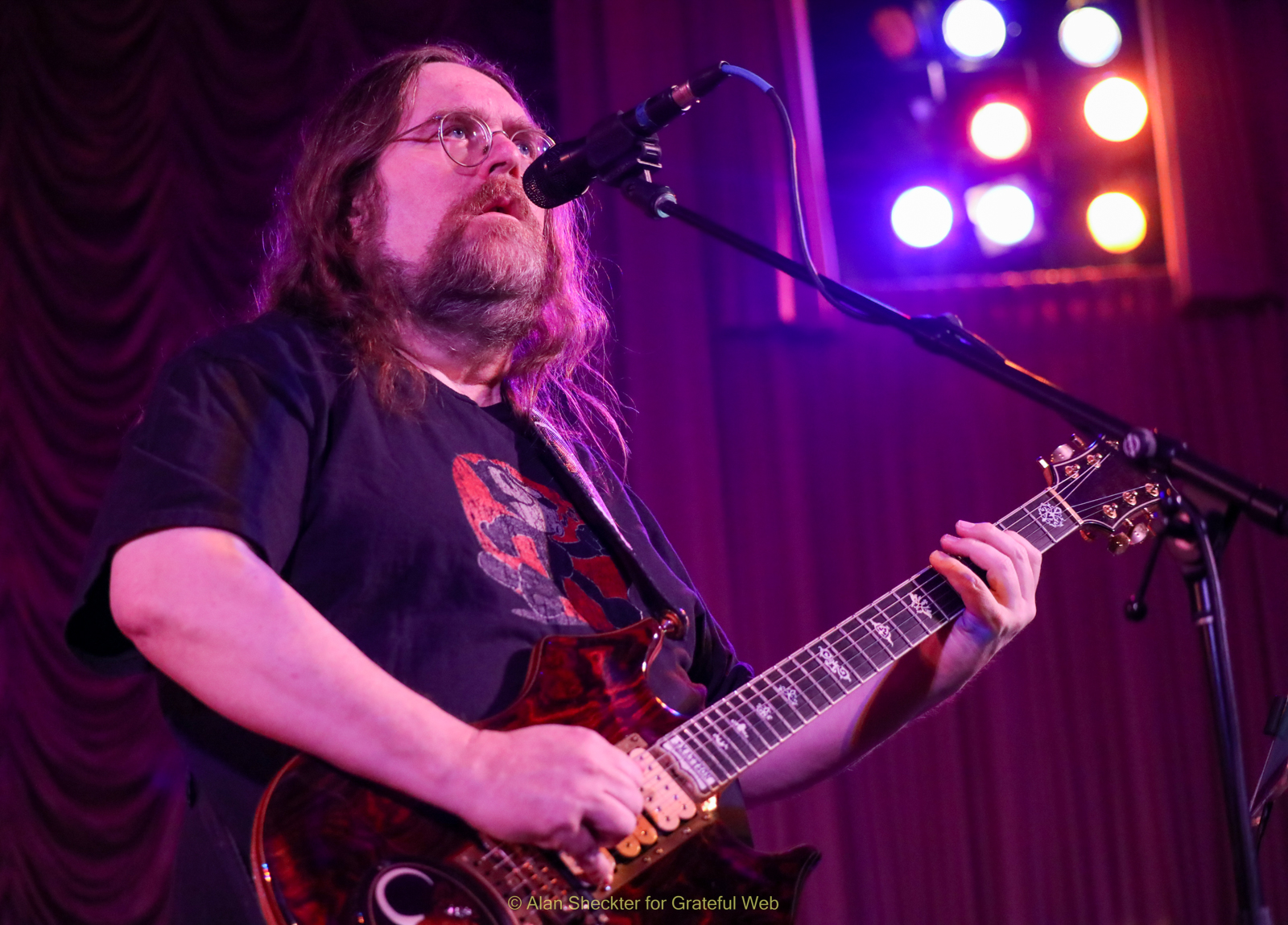
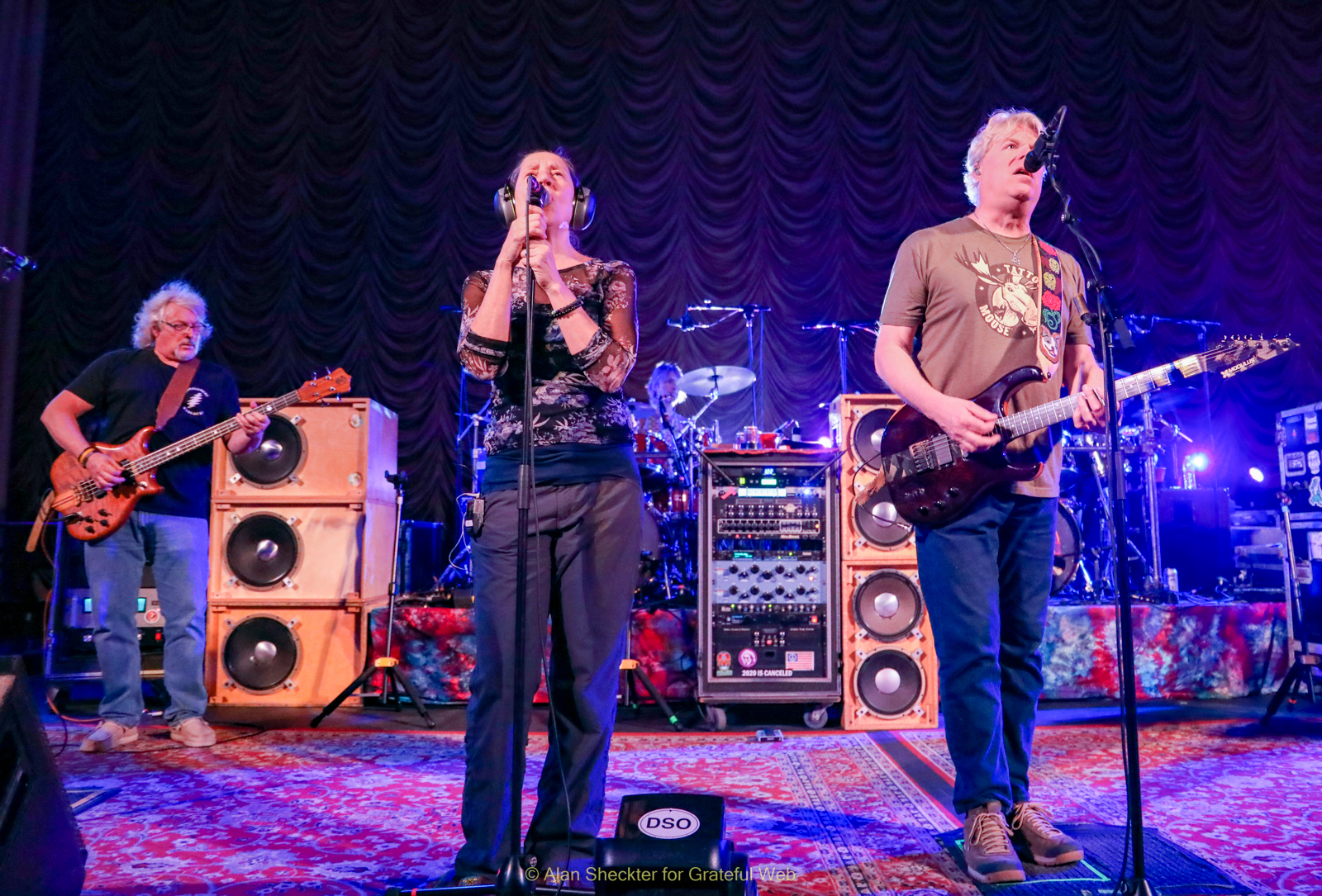
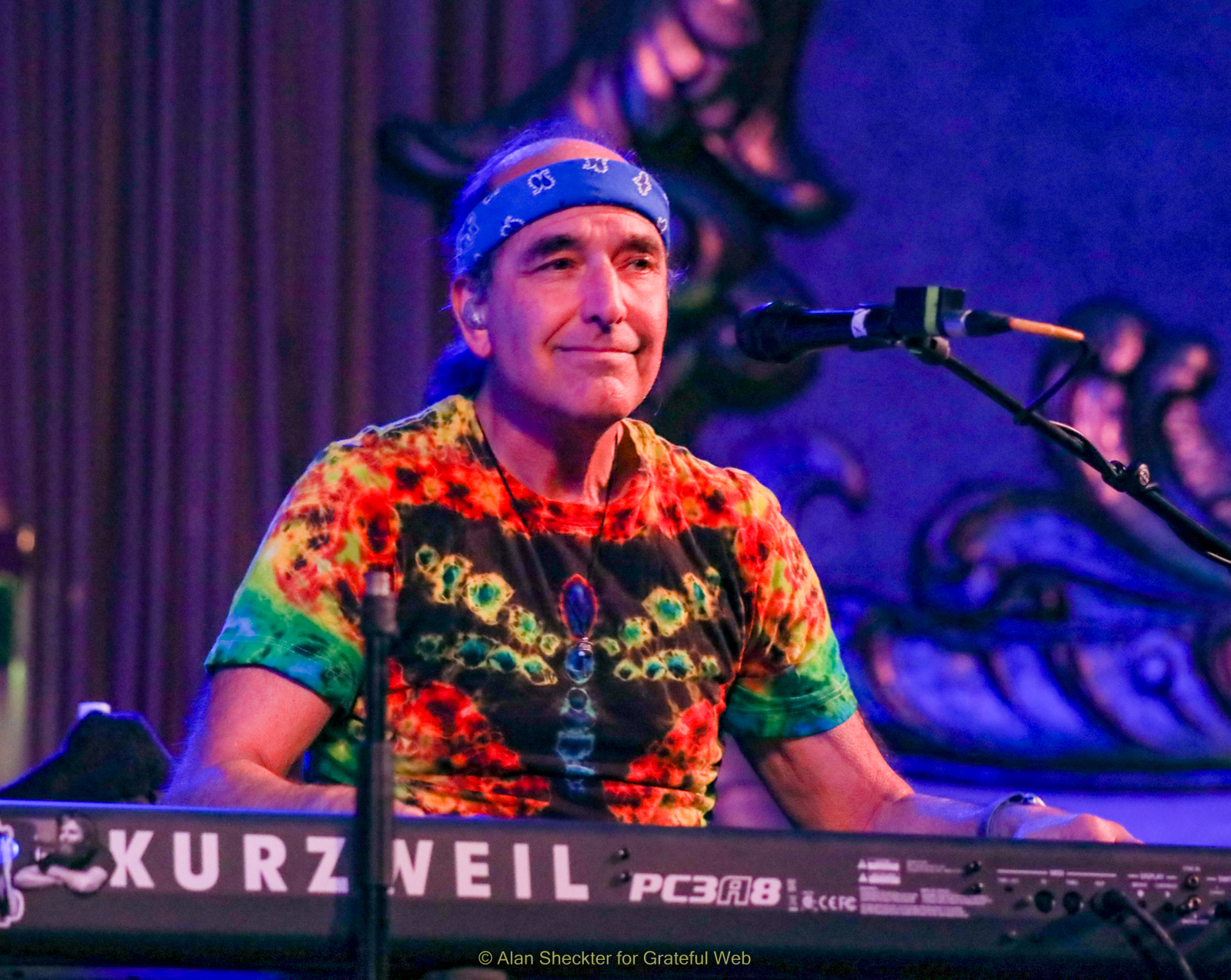
The first set also included “C. C. Rider,” a classic blues tune covered by countless folks, perhaps first by Ma Rainey in 1924 as “See See Rider Blues,” and a Grateful Dead staple mostly in the ‘80s; as well as “Big Railroad Blues,” another hundred-year-old song, introduced originally by Noah Lewis and Cannon’s Jug Stoppers.
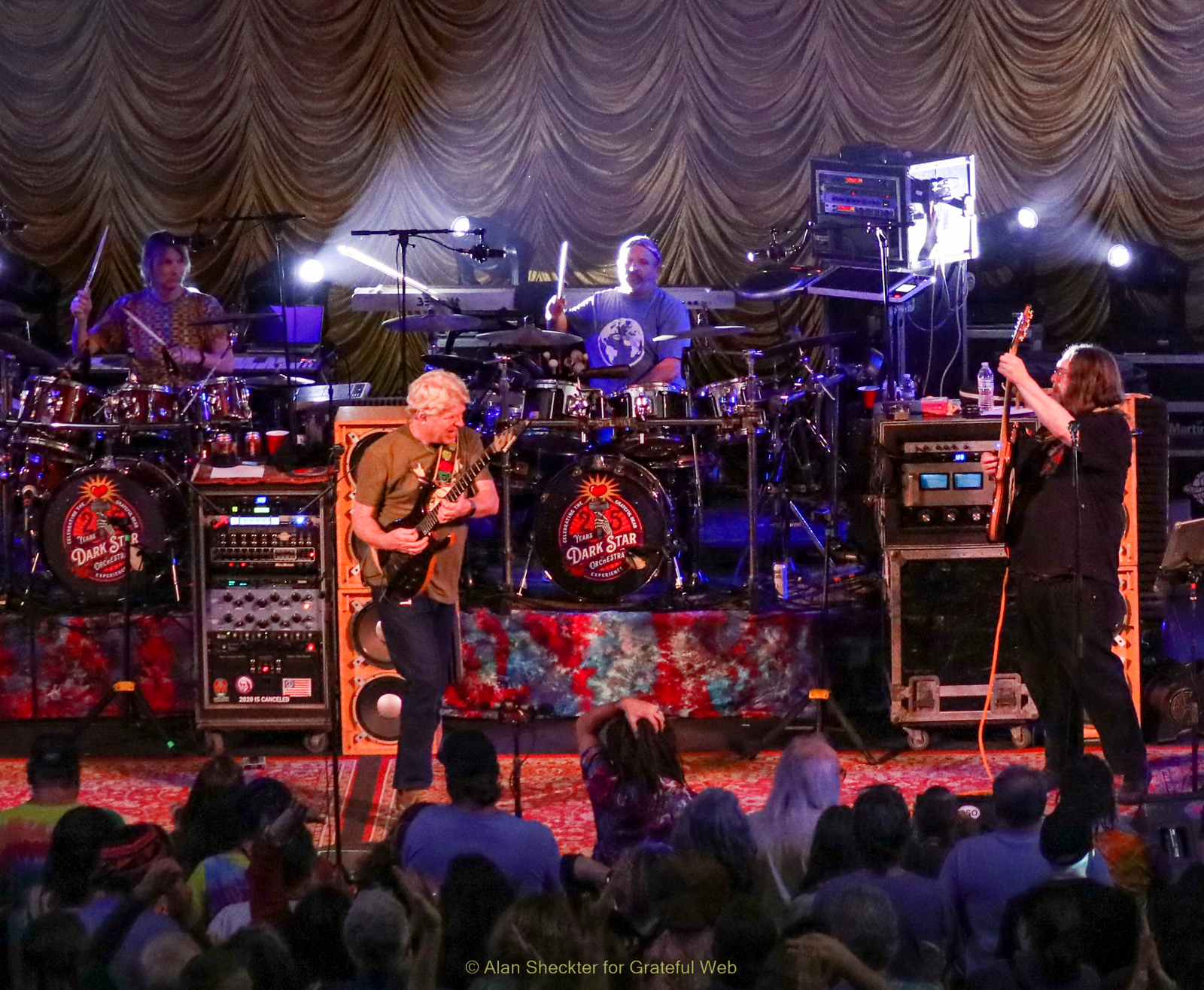
Interestingly, the second set touched on The Beatles three times, including the fine and perhaps the first-ever performance of the “Abbey Road” masterpiece, “Come Together,” which appeared after the drums ‘n’ space section of the set. DSO also touched on The Beatles by opening the set with the slightly naughty novelty song, “Why Don’t We Do It in the Road?” as well as “Hey Jude” for which in the late ‘80s the Grateful Dead often melded with “Dear Mr. Fantasy.”
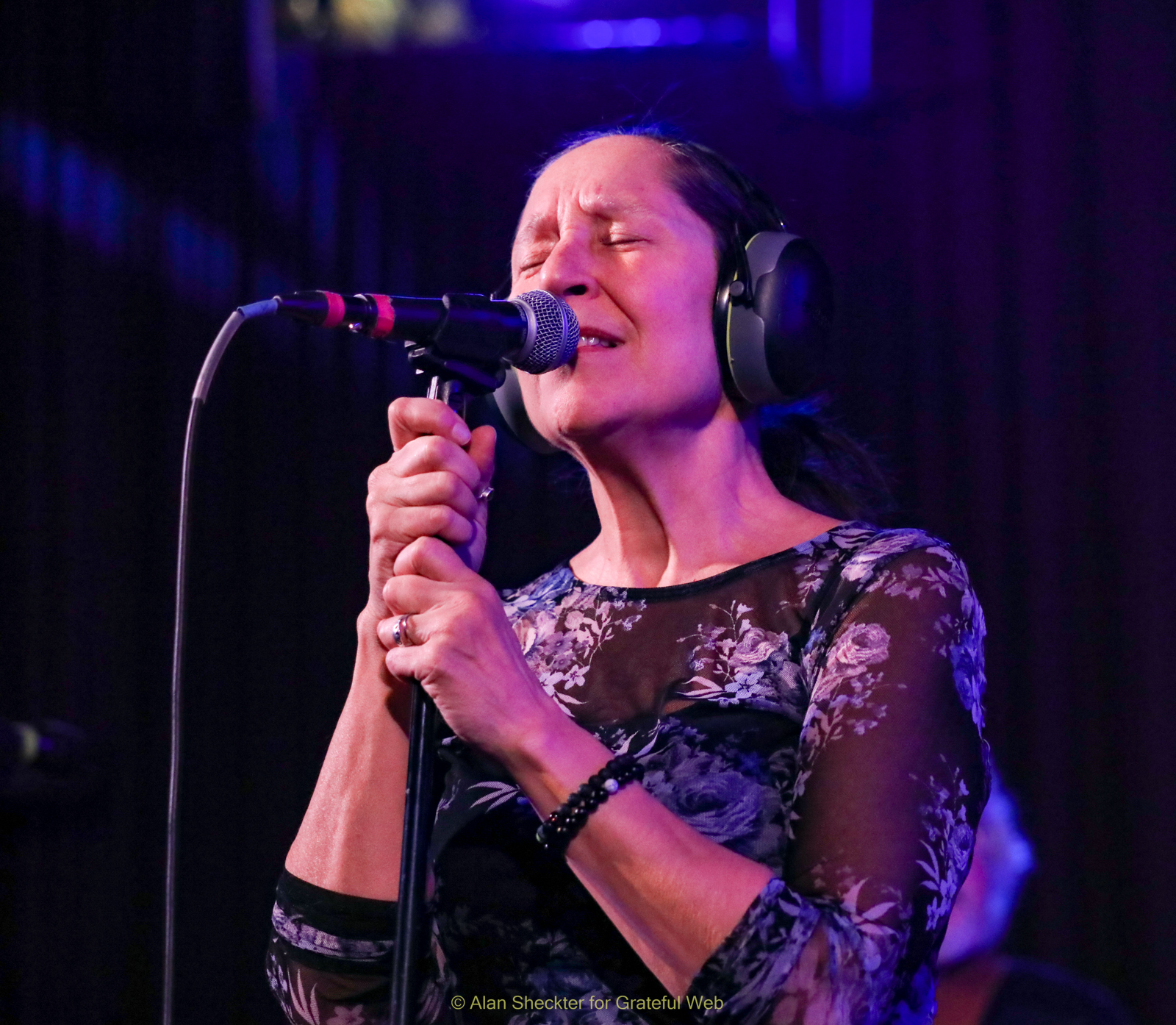
The second set pre-drums portion of the show was powerful, with each song performed with passion, aplomb, and force. The aforementioned “Why Don’t We Do It in the Road?” led into a massive, crowd-pleasing pairing of “China Cat Sunflower,” into “I Know You Rider,” followed a wonderful version of Donna Jean Godchaux’s “Sunrise,” the first female-led song brought into the Grateful Dead fold in the late ‘70s, sung with great spirit by Lisa Mackey with intense jamming by Mattson. After a few-minute tune-up, a bountiful version of Lesh’s “Unbroken Chain” took the band to the drums segment of the show.
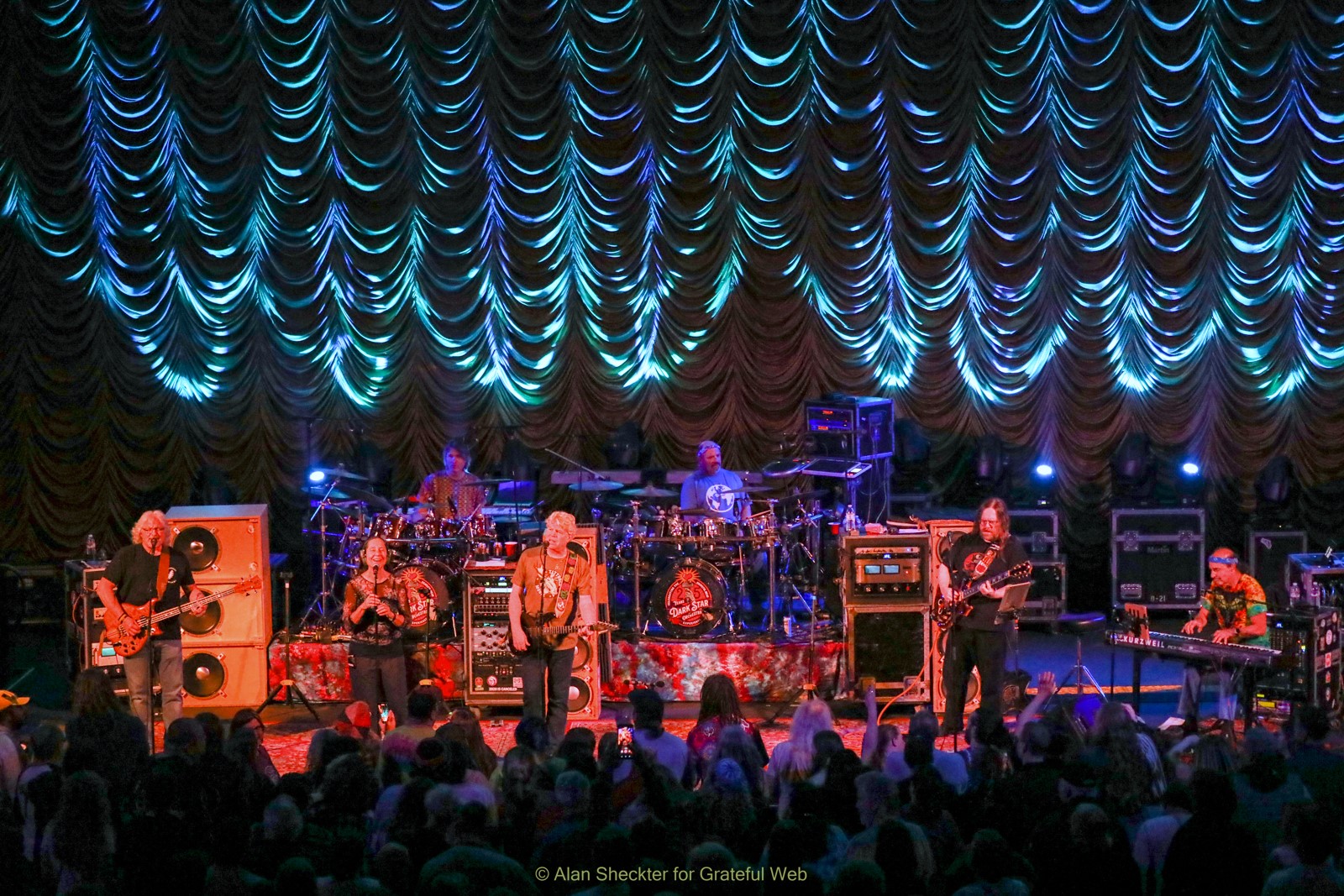
Post-drums, in addition to the Beatles inclusions, were fine executions of the rocking “I Need A Miracle,” tender “If I Had the World to Give,” which the Grateful Dead did a total of three times, all in 1978, and a gigantic version of “Shakedown Street” to end the set. More surprises were still in store, as DSO outputted encores of two songs by The Band – the ballad, “It Makes No Difference” and rocker, “The Shape I’m In” (both written by Robertson and originally sung by Rick Danko).
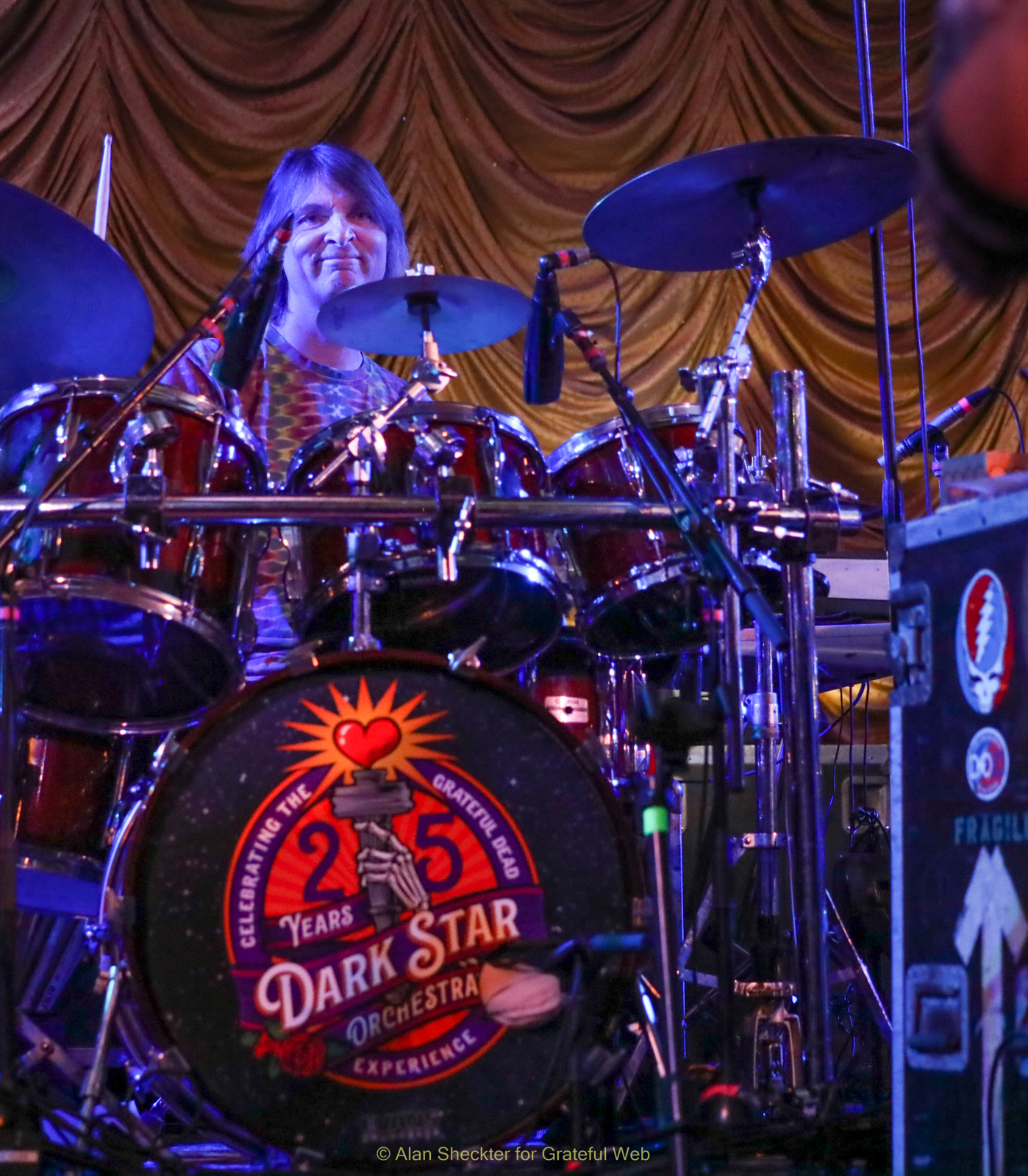
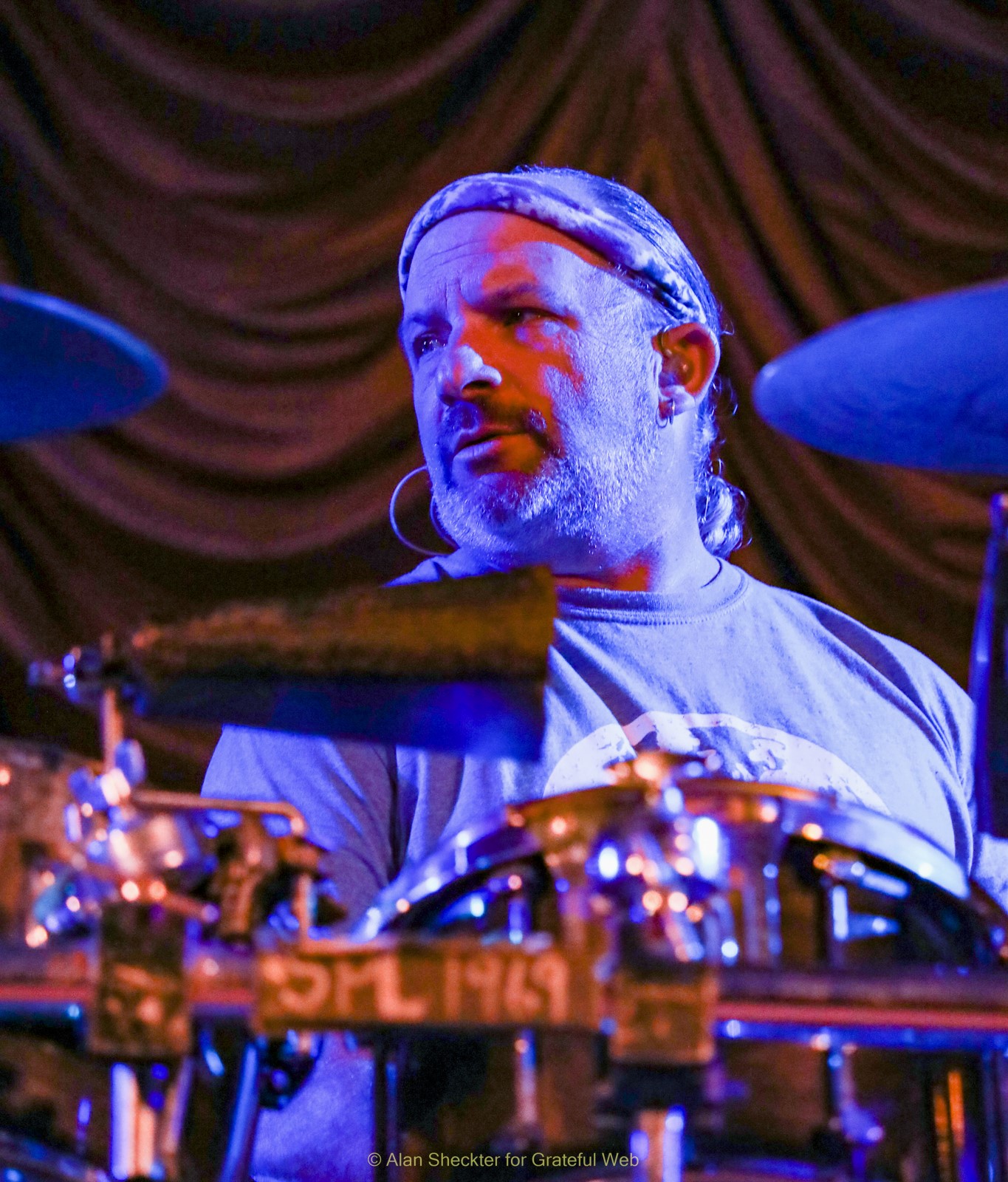
While vocalist Mackey (formerly of Fenario and the Shotgun Ragtime Band) is the only band member to have been with DSO since its founding in 1997, the group’s current lineup has also contributed many years of service. Dual drummer/percussionists Dino English and Rob Koritz, have both rhythmized for DSO since 1999. Eaton, a major figure in the Grateful Dead tape-trading scene going back to the ‘70s, and member of Dead cover band Border Legion, has held down DSO’s “Bob Weir slot” since 2001. Barraco, who performed with Mattson in the Zen Tricksters in the ‘80s and ‘90s, and did tours of duty with the Phil Lesh Quintet and Phil Lesh and Friends, came to DSO in 2005. Mattson, who in addition to co-founding the Zen Tricksters, recorded and toured with the Donna Jean Godchaux Band, before becoming DSO’s “Garcia” in 2009. Finally, Vangelas, who played in Border Legion with Eaton back in the day, assumed the bass position in 2013.
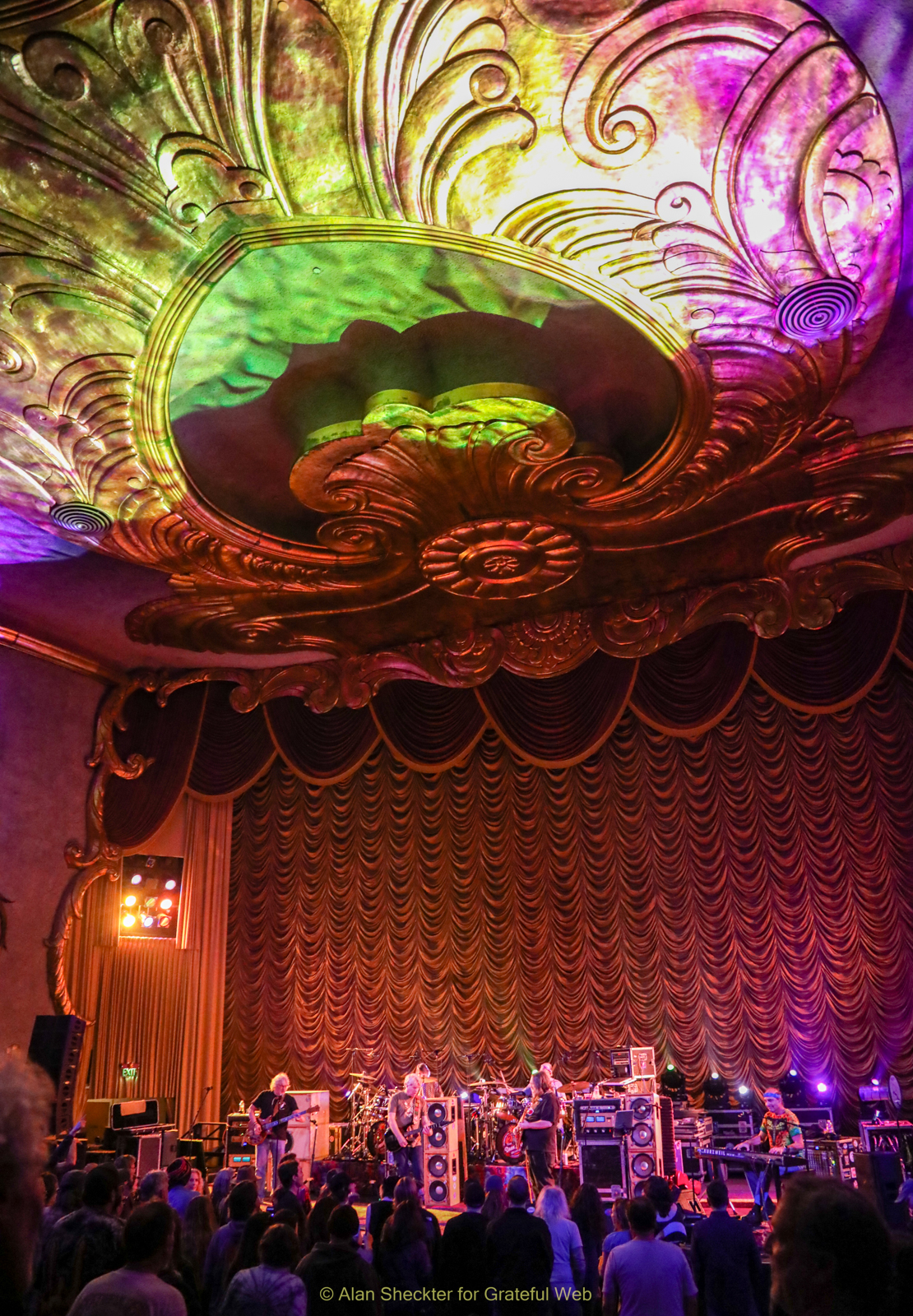
Twenty-five years into its journey, DSO can hardly be considered a novelty act and its relevance can hardly be argued, citing a) the excellence of the product they deliver, b) the fact that the group has its own ardent following, and c) that they’ve performed more shows, over 3,000, than the Grateful Dead did in its 30 years that ended in 1995.
